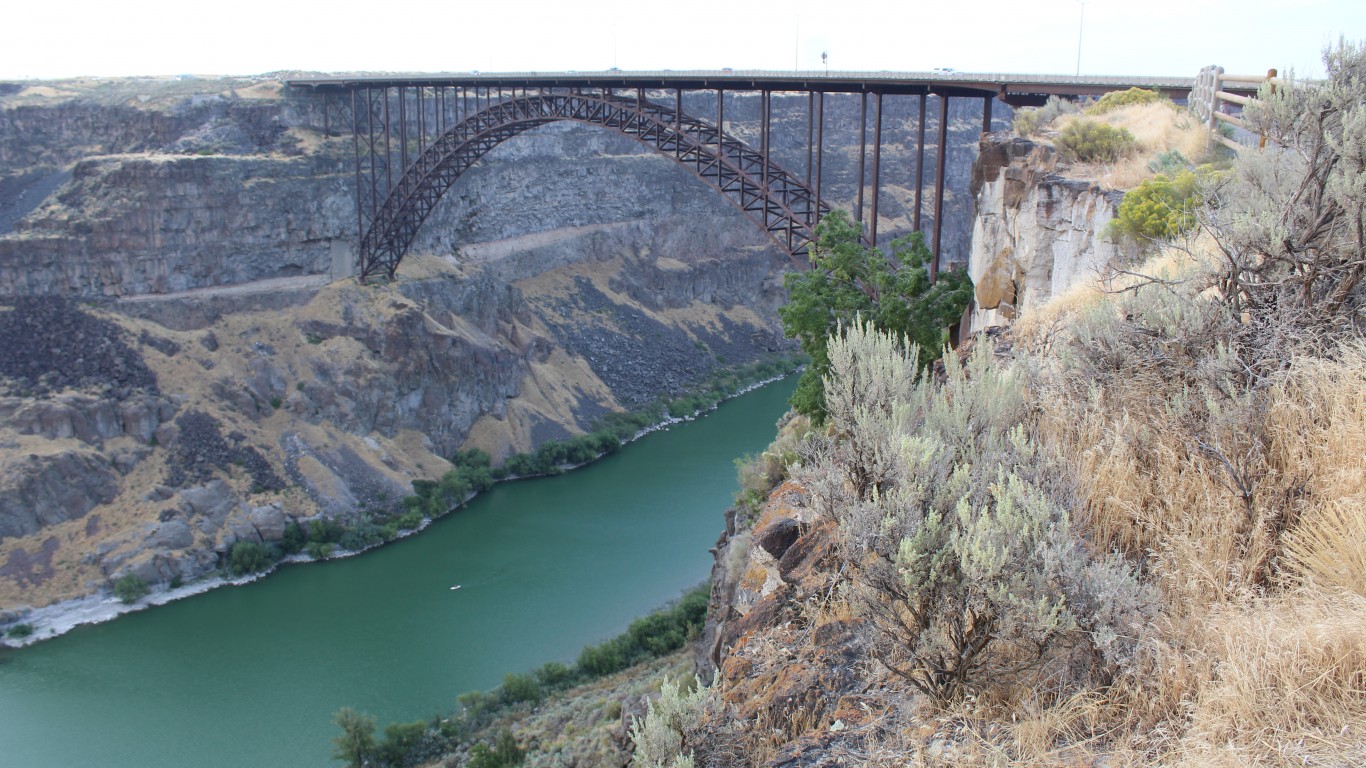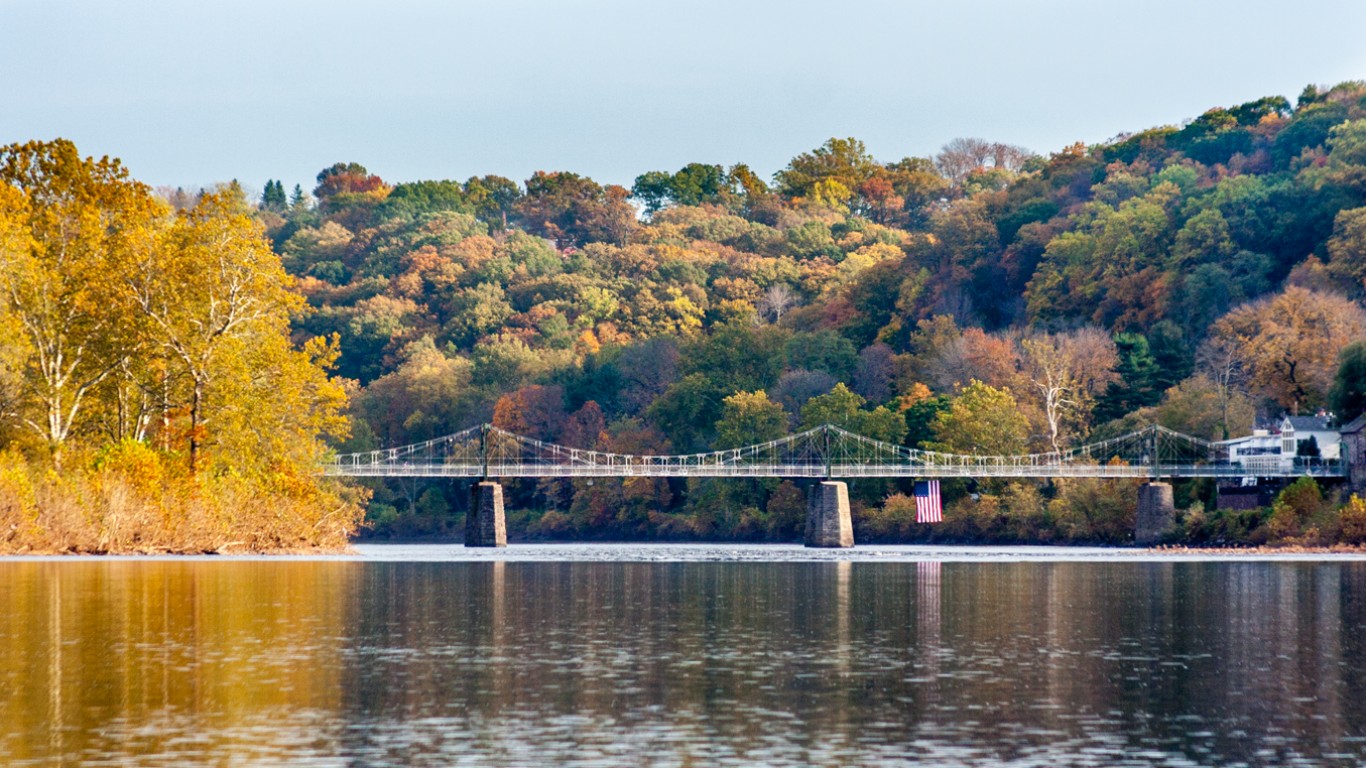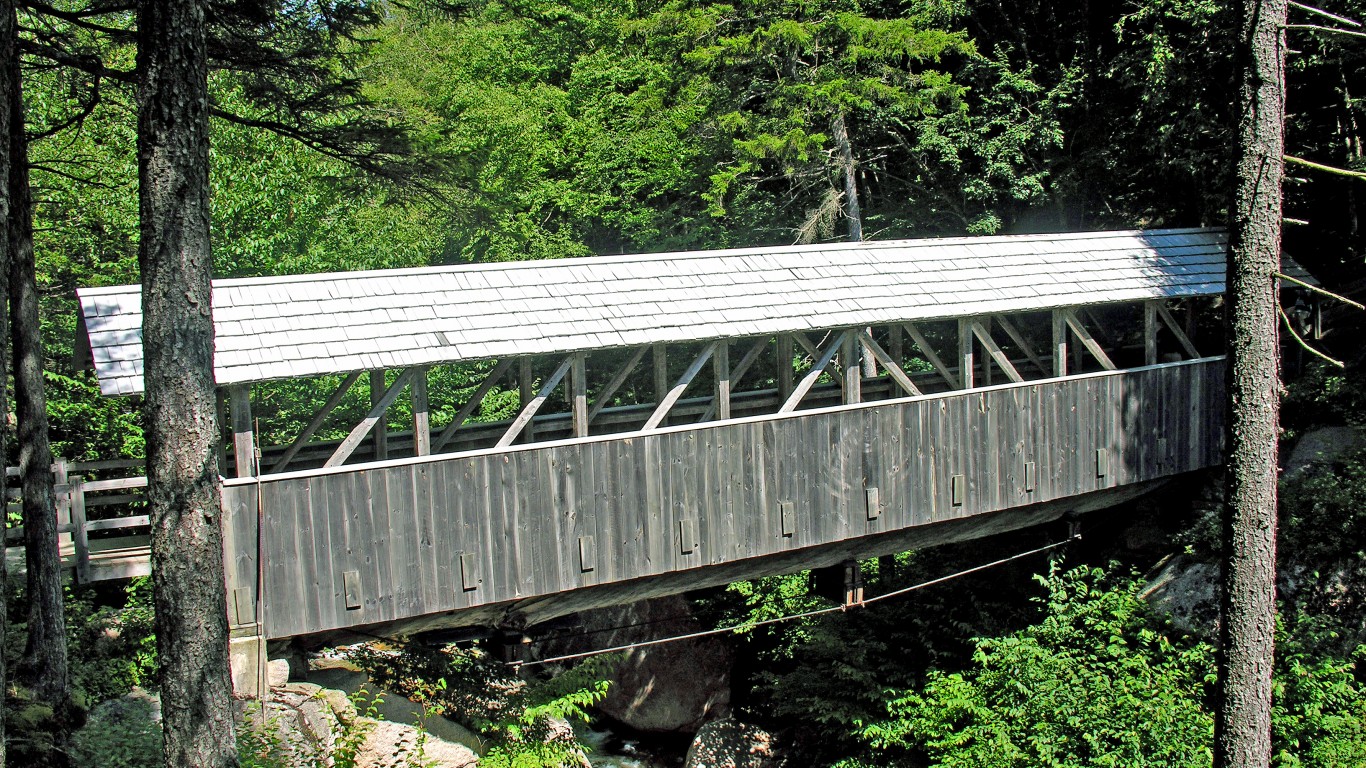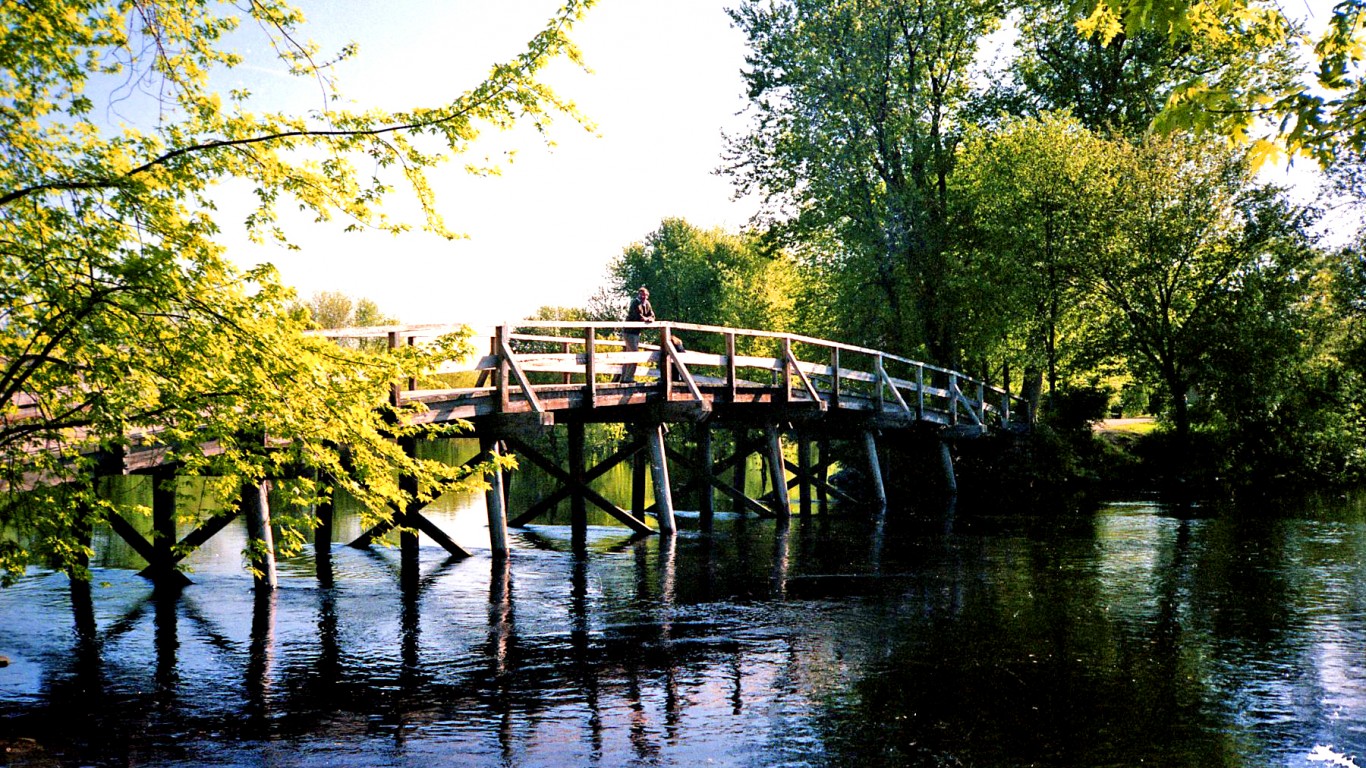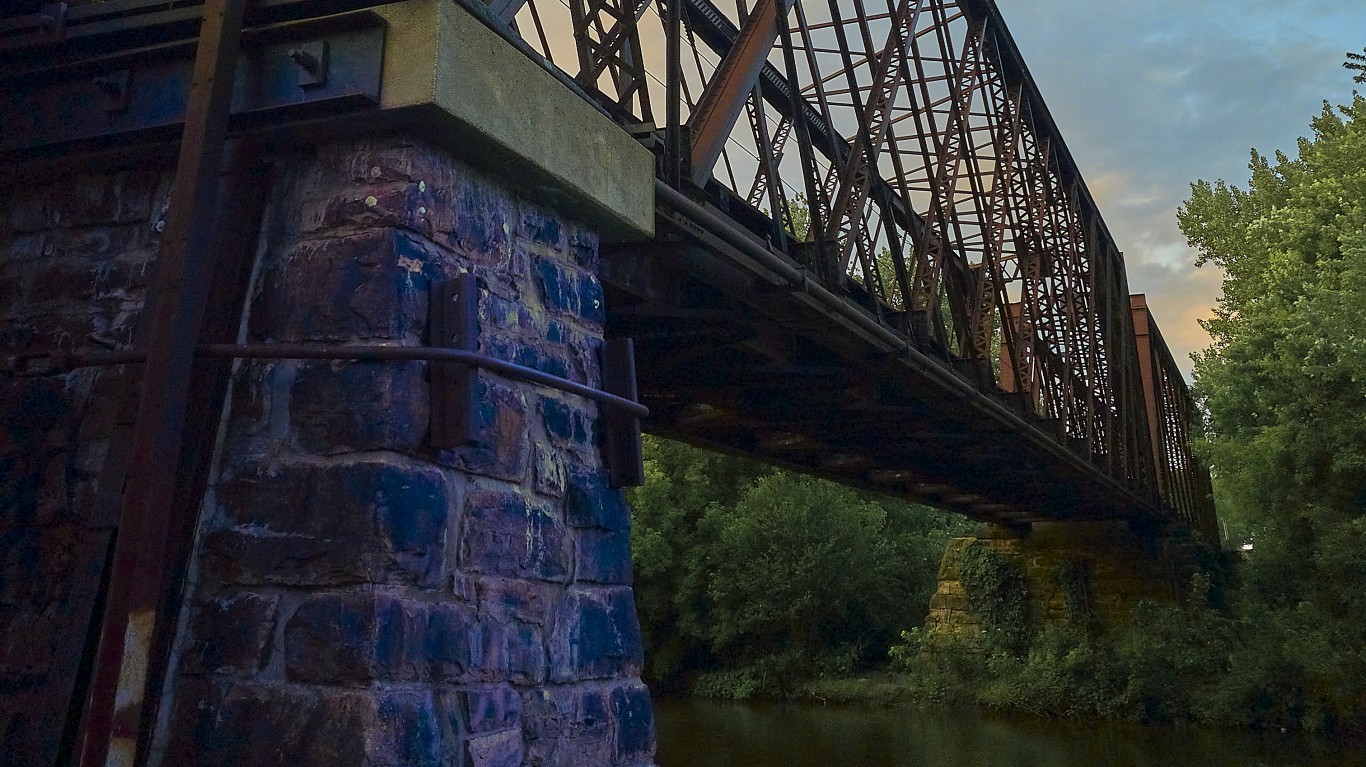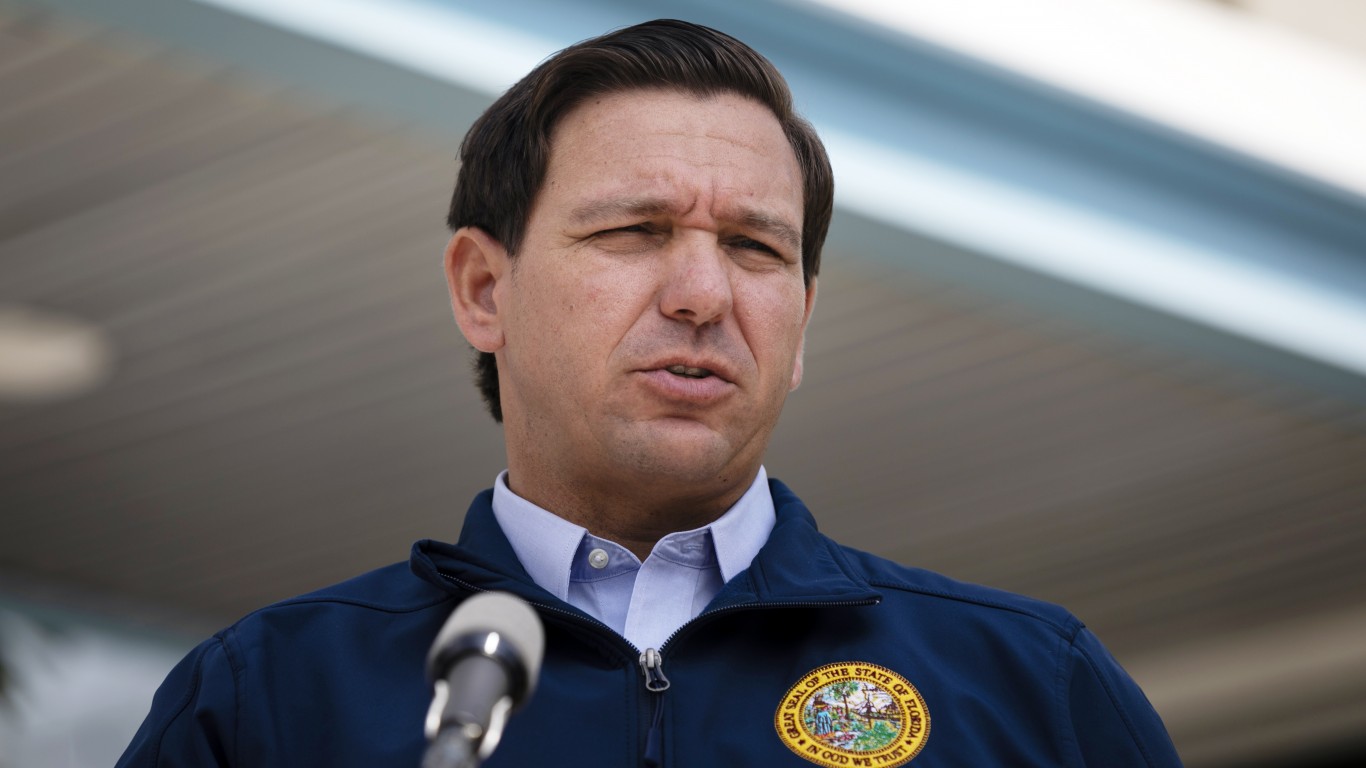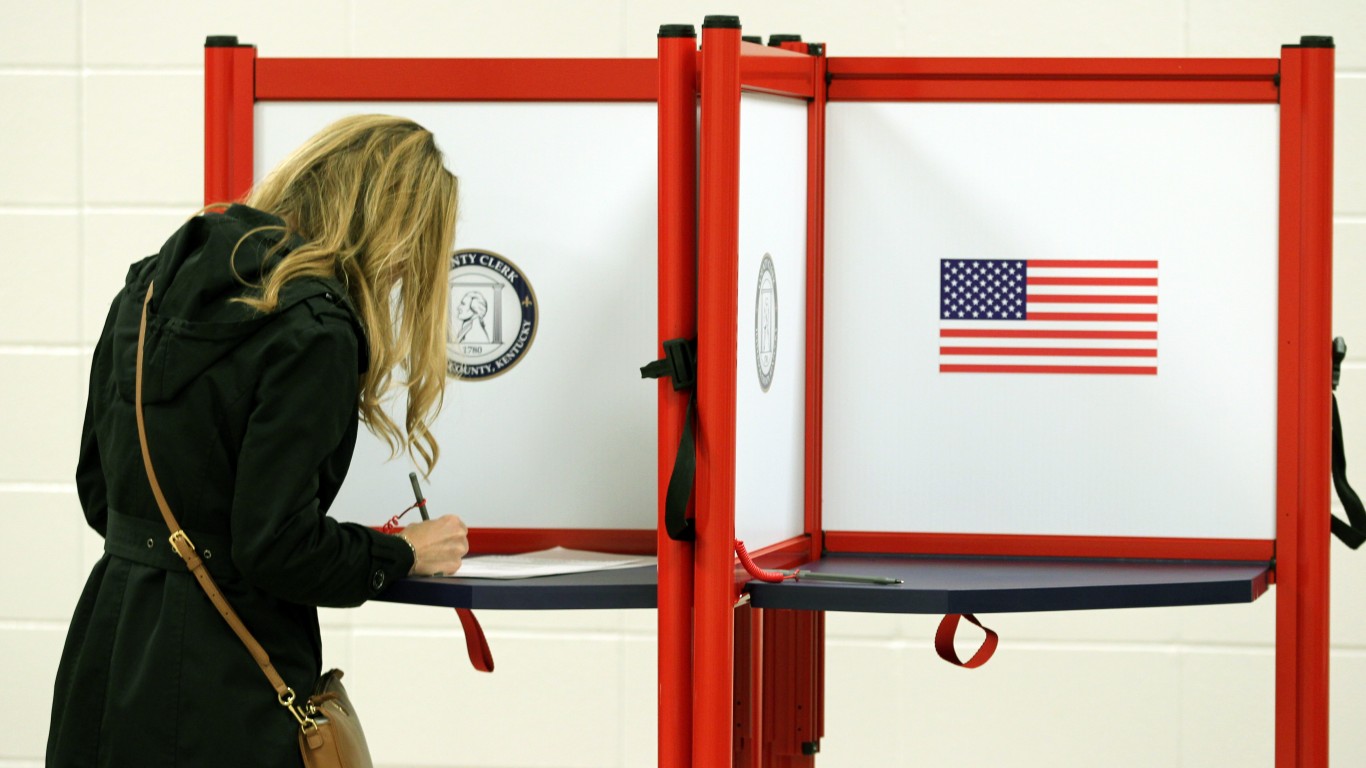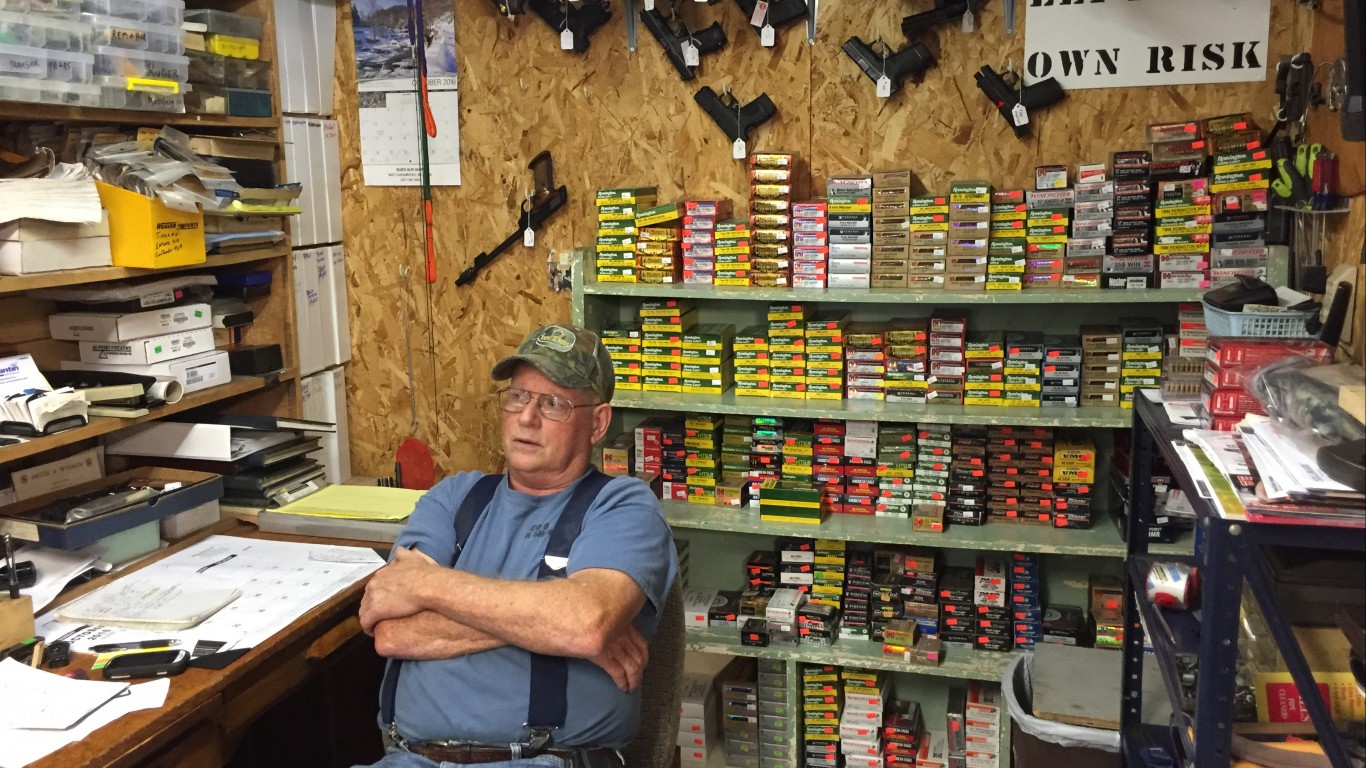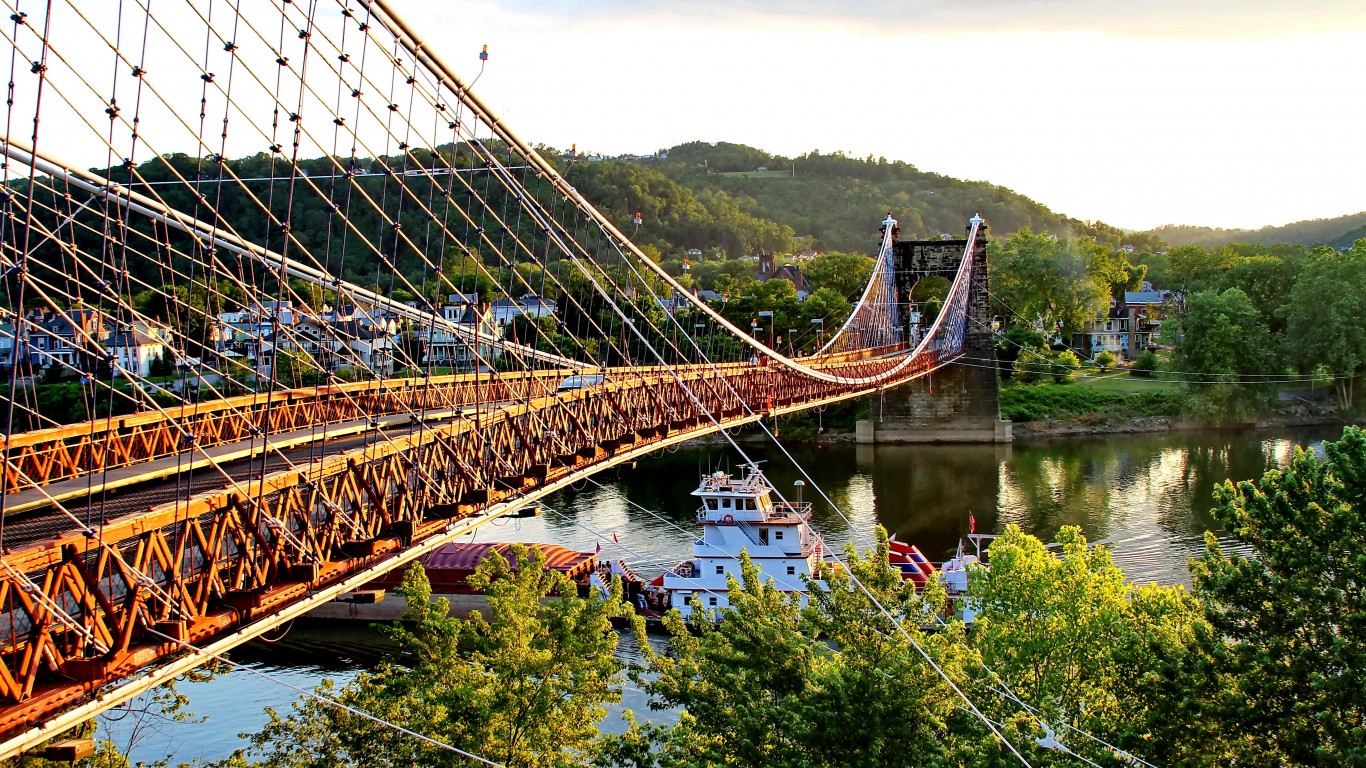
Under federal law, states must periodically inspect bridges — based on standards set by the Pavement and Bridge Condition Performance Measures final rule — and report the findings to the Federal Highway Administration. The deck, superstructure, substructure, and culvert are all rated on a scale of 0 to 9. If all the elements rate at least 7, the bridge is classified as being in good condition. If an element rates no less than between 5 and 6, the bridge is considered in fair condition. If any of the bridge’s elements rate 4 or less, the bridge’s condition is classified as poor.
Of the 618,456 bridges in the U.S. (comprising over 396.2 million square meters of bridges), 7.3% — 45,031 bridges (comprising 21 million square meters) — were classified in poor condition as of 2020. Another 294,992 bridges, 47.7%, were classified as fair and 278,433 bridges, 45.5%, as good, according to the Bureau of Transportation Statistics. In Pennsylvania, 14.6% of bridges were in poor condition.
To determine the states with the highest percentage of bridges in poor condition, 24/7 Wall St. reviewed data from the FHWA. States were ranked on the share of total bridges classified as being in poor condition as of the beginning of 2021.
Bridges are also considered structurally deficient “if significant load-carrying elements are in poor condition due to deterioration or damage” or if “the waterway opening of the bridge causes intolerable roadway traffic interruptions.” However, a bridge classified as structurally deficient isn’t necessarily unsafe and may require some measures taken or more frequent monitoring. If a bridge is found unsafe, it would be shut to traffic immediately.
To encourage state spending on structurally unsound bridges, there is a penalty threshold under the National Highway Performance Program. If more than 10% of the total deck area of a state’s bridges is rated as structurally deficient for three consecutive years, the state must set aside NHPP funds for eligible projects on bridges on the National Highway System.
Here are the states with the most structurally deficient bridges
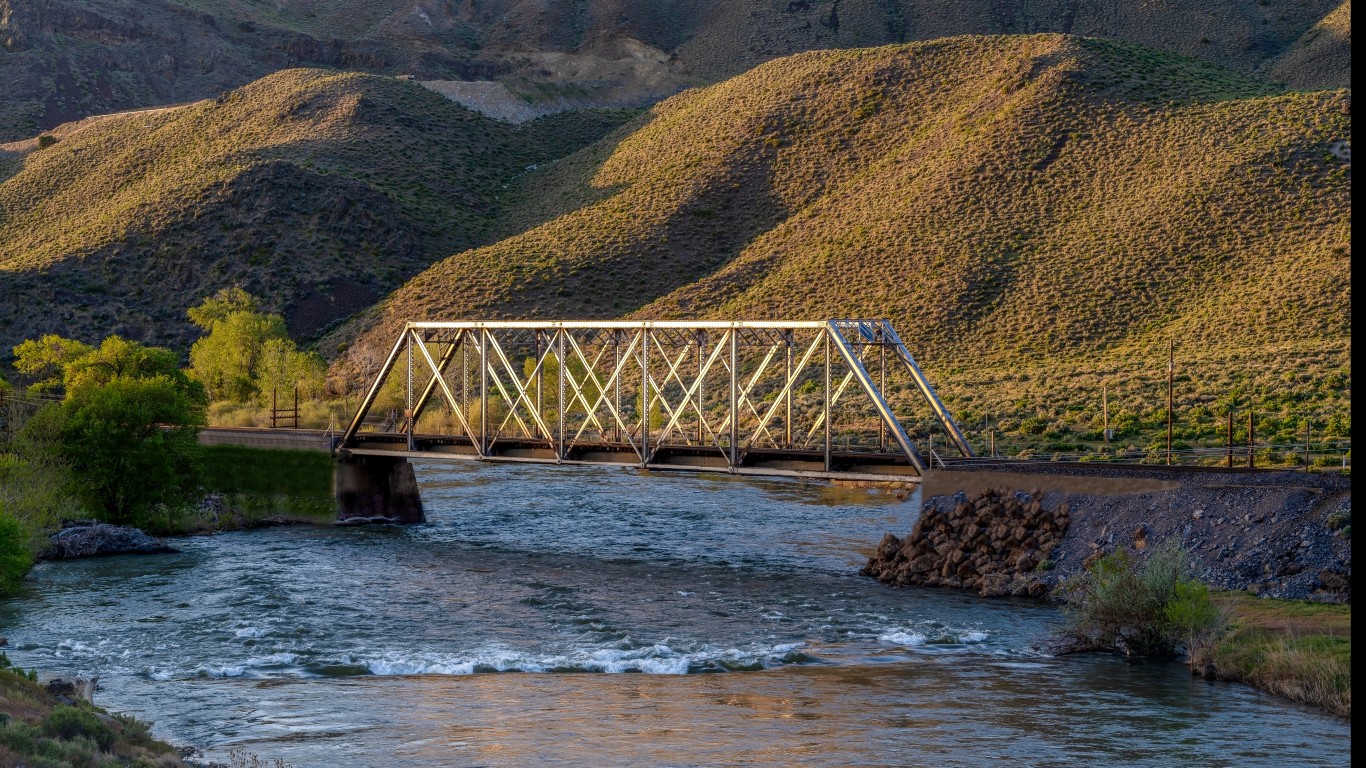
50. Nevada
> Share of bridges in poor condition: 1.4%
> Total bridges in poor condition: 28 — 2nd fewest
> Total bridges in Nevada: 2,056 — 5th fewest
[in-text-ad]
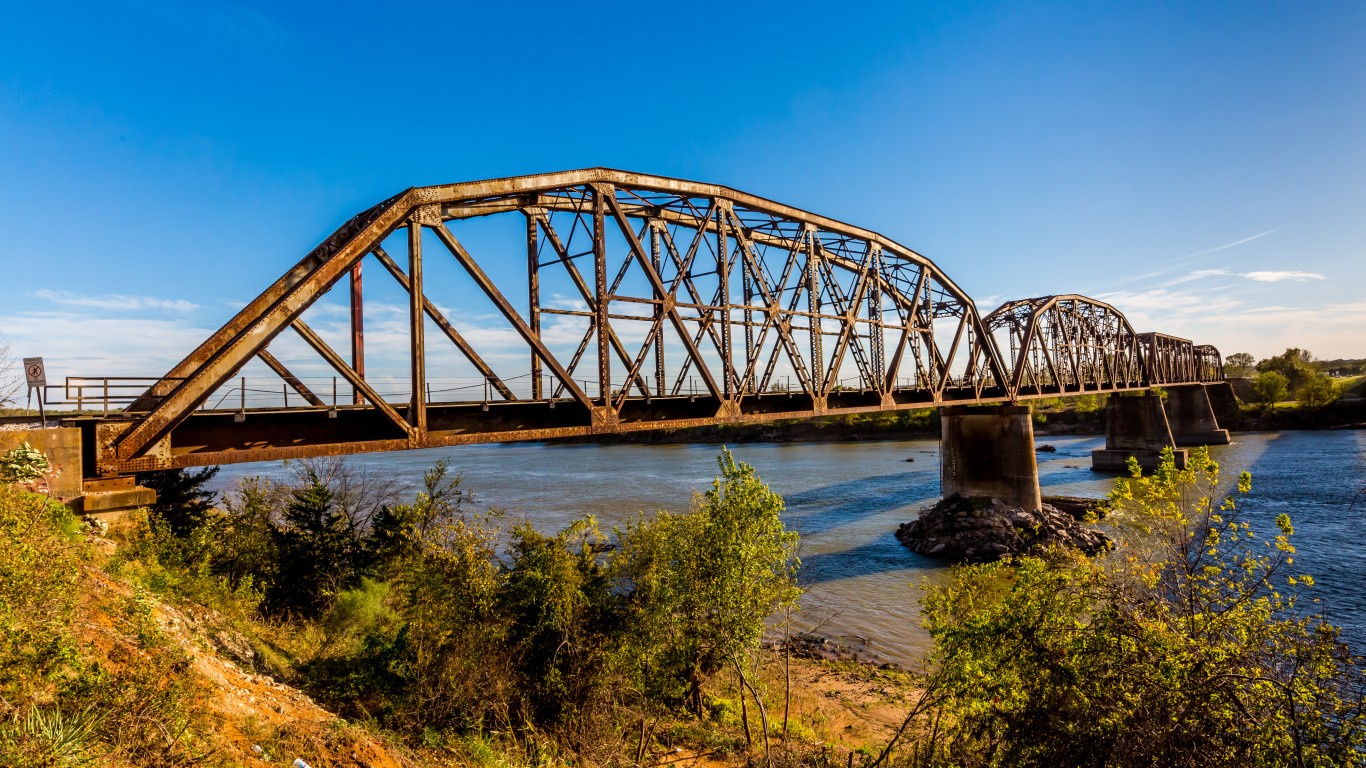
49. Texas
> Share of bridges in poor condition: 1.5%
> Total bridges in poor condition: 818 — 21st most
> Total bridges in Texas: 54,682 — the most
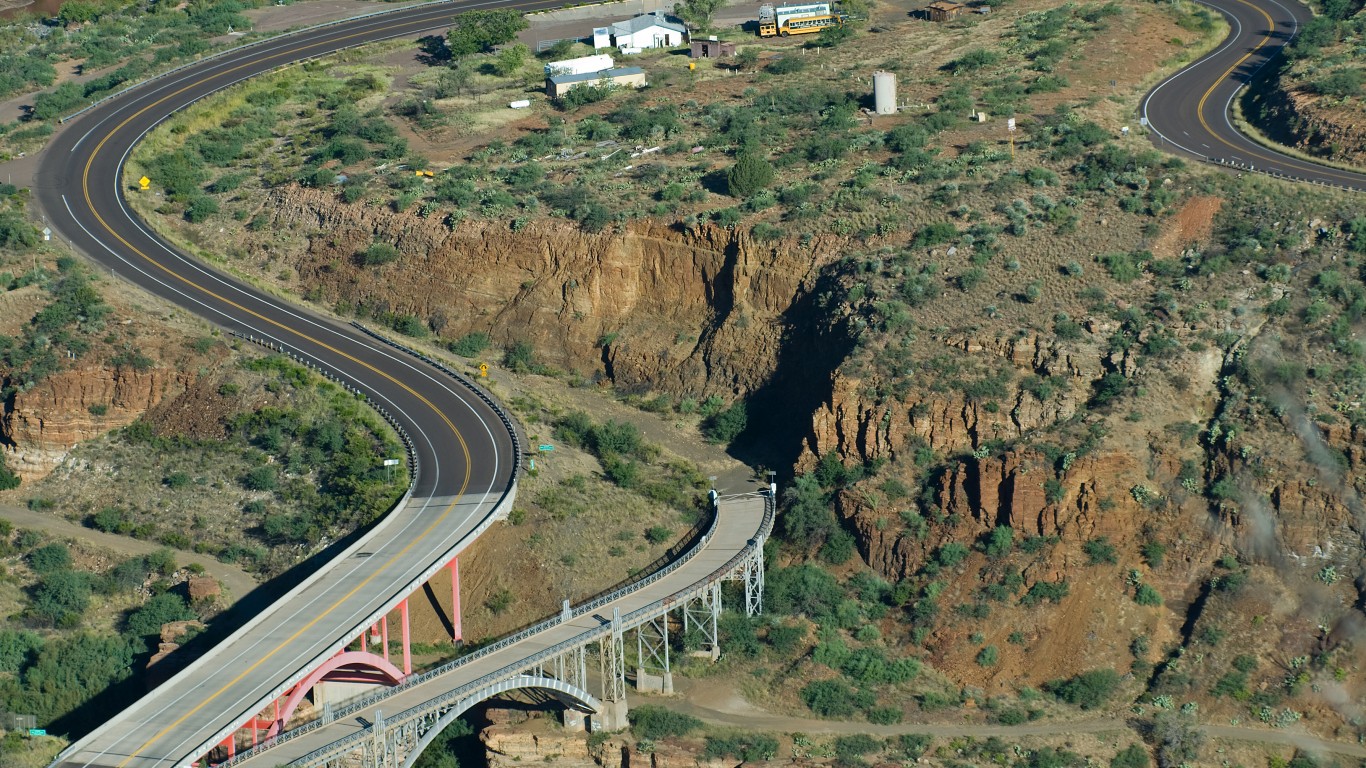
48. Arizona
> Share of bridges in poor condition: 1.6%
> Total bridges in poor condition: 132 — 6th fewest
> Total bridges in Arizona: 8,428 — 23rd fewest
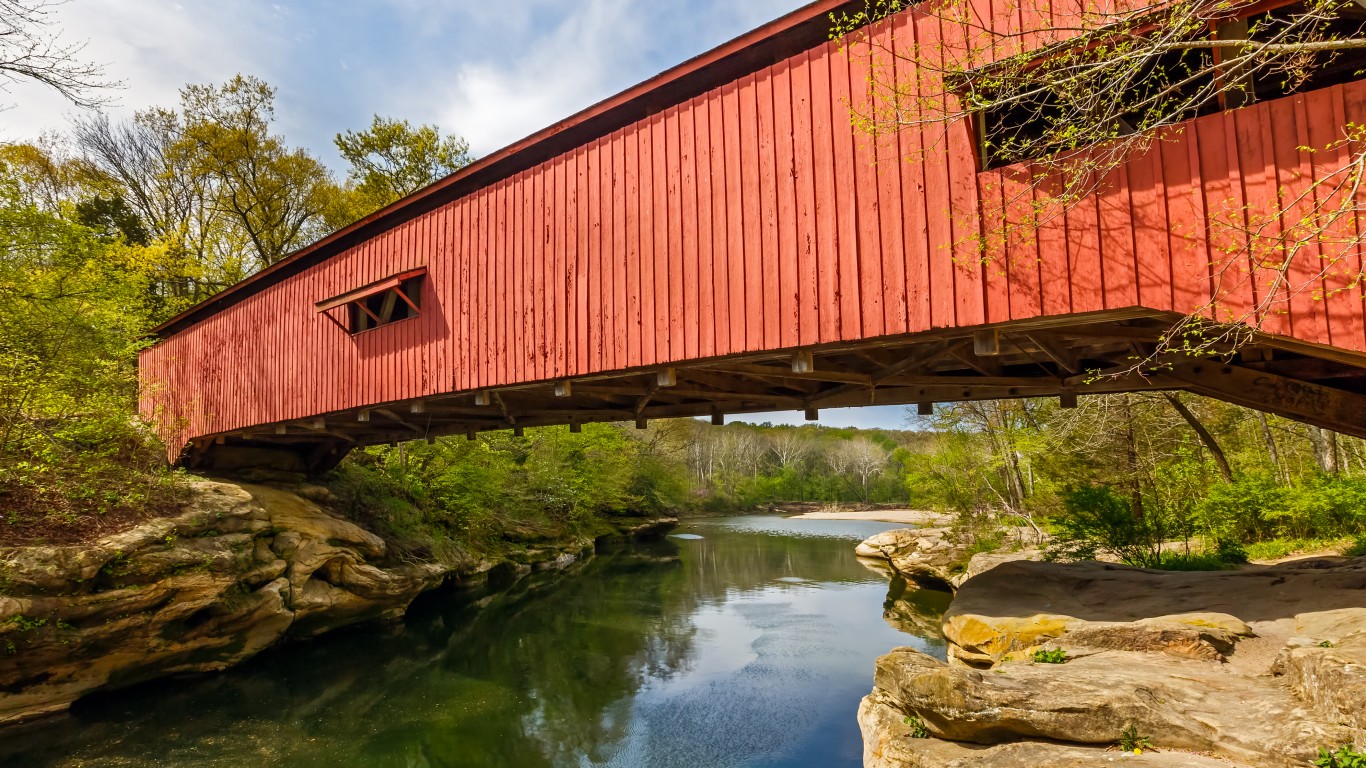
47. Utah
> Share of bridges in poor condition: 2.0%
> Total bridges in poor condition: 62 — 3rd fewest
> Total bridges in Utah: 3,062 — 9th fewest
46. Delaware
> Share of bridges in poor condition: 2.2%
> Total bridges in poor condition: 19 — the fewest
> Total bridges in Delaware: 882 — 2nd fewest
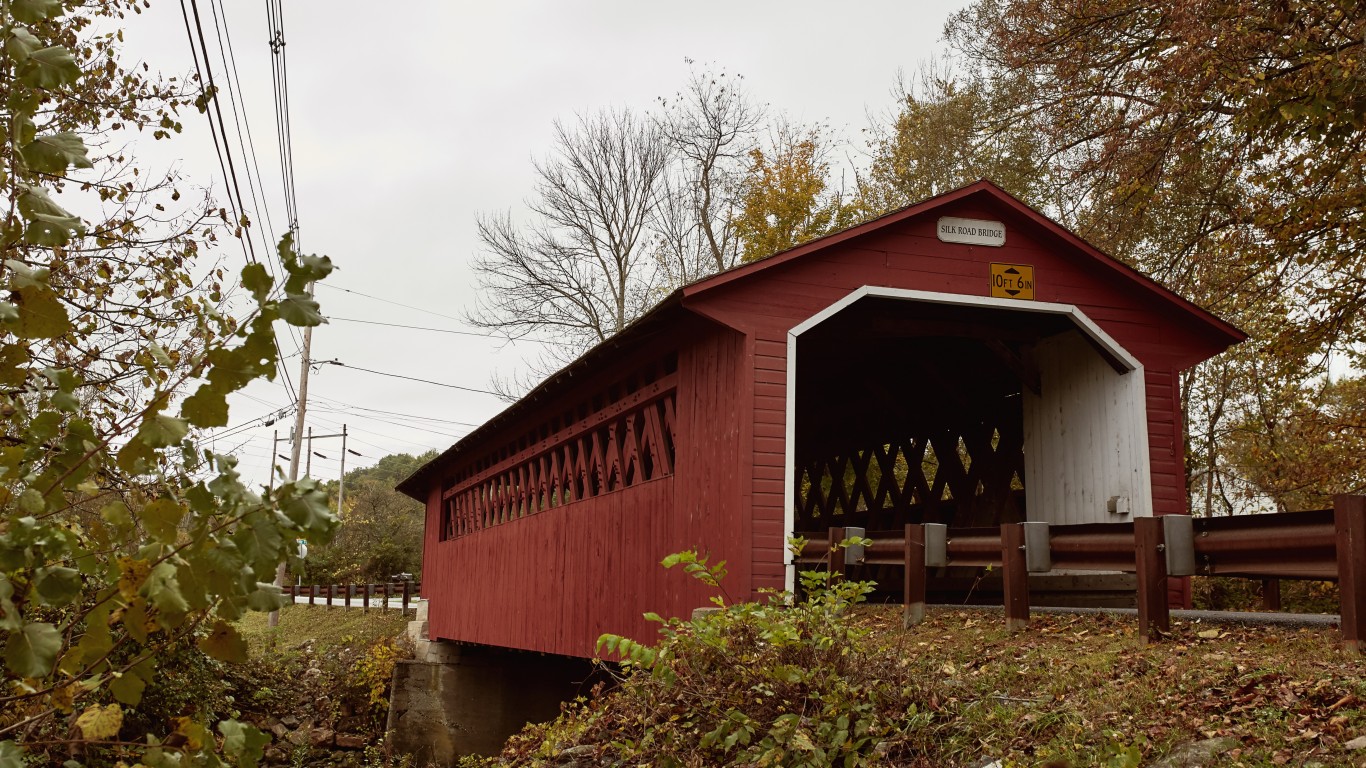
45. Vermont
> Share of bridges in poor condition: 2.3%
> Total bridges in poor condition: 66 — 4th fewest
> Total bridges in Vermont: 2,827 — 8th fewest
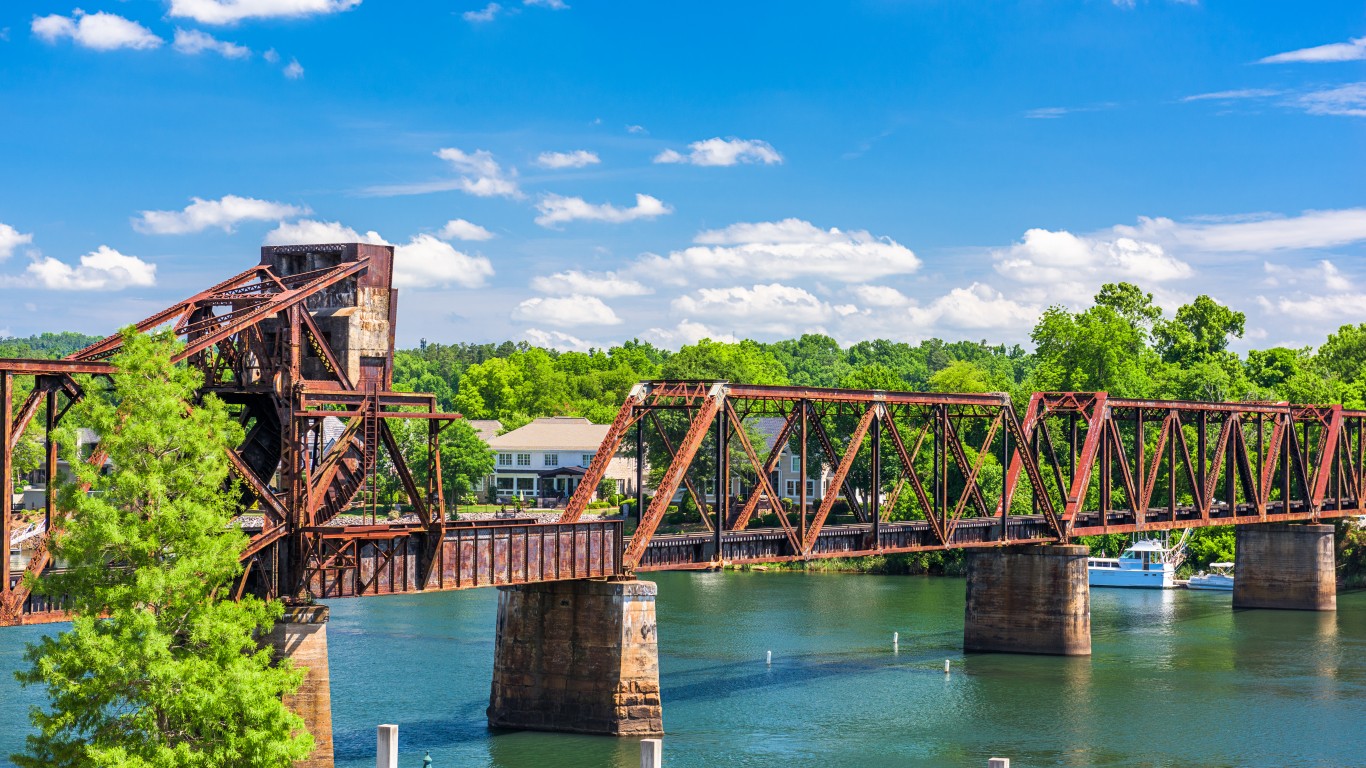
44. Georgia
> Share of bridges in poor condition: 2.5%
> Total bridges in poor condition: 374 — 16th fewest
> Total bridges in Georgia: 14,964 — 17th most
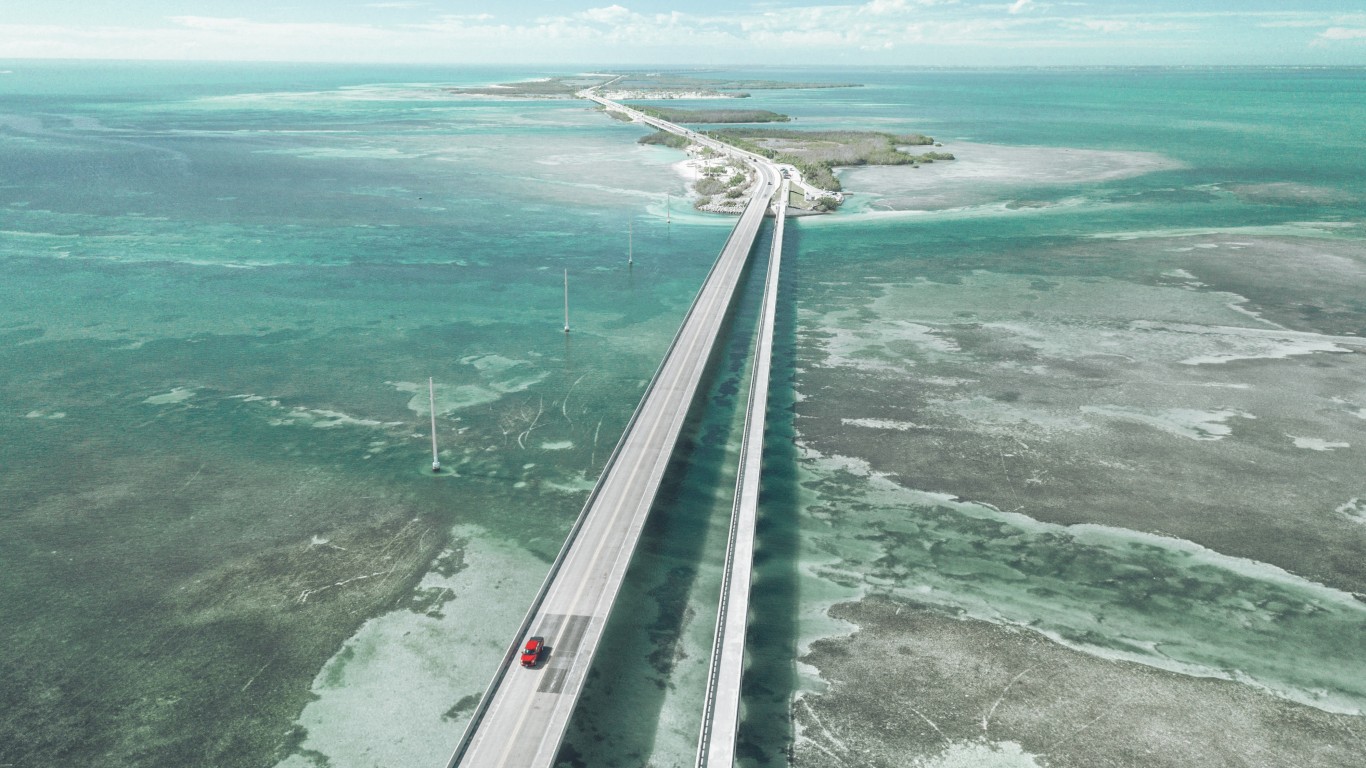
43. Florida
> Share of bridges in poor condition: 3.2%
> Total bridges in poor condition: 408 — 19th fewest
> Total bridges in Florida: 12,592 — 24th most
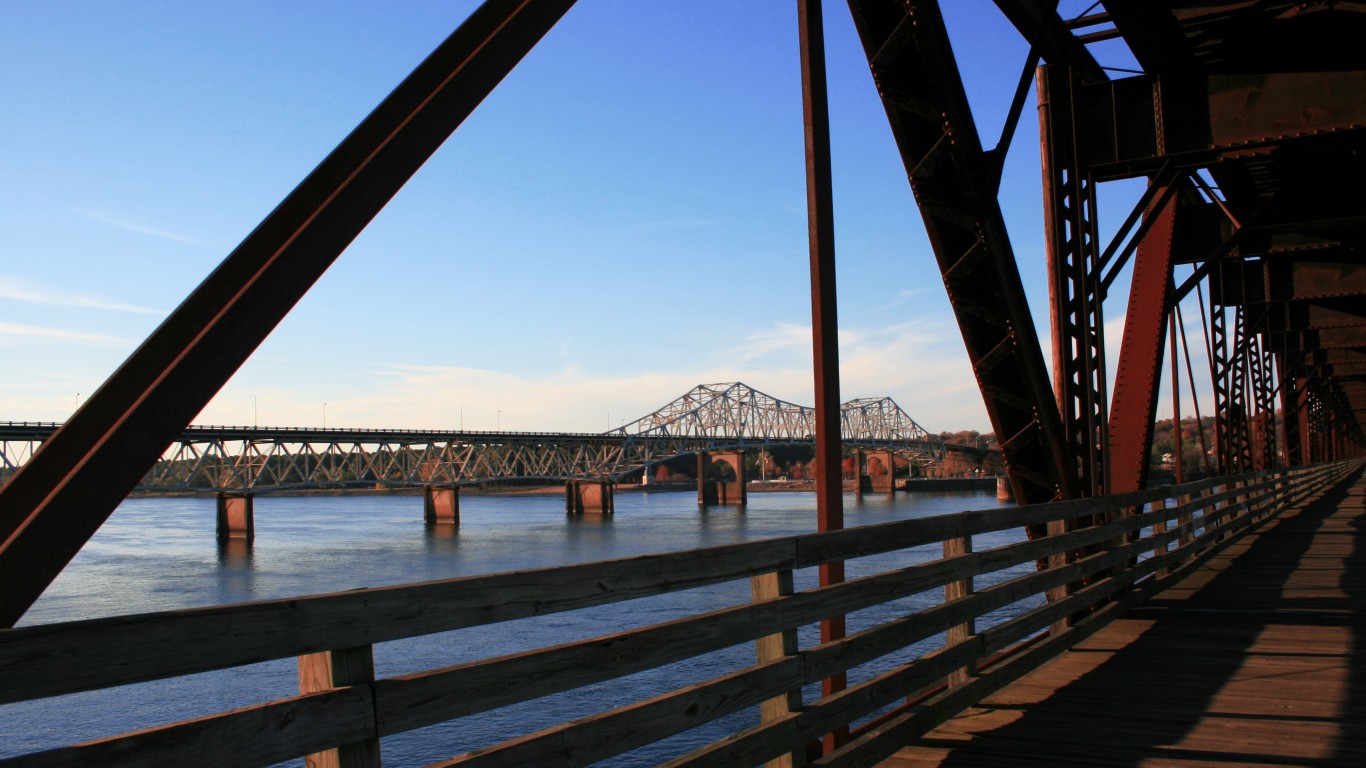
42. Alabama
> Share of bridges in poor condition: 3.8%
> Total bridges in poor condition: 620 — 25th most
> Total bridges in Alabama: 16,155 — 15th most
41. Virginia
> Share of bridges in poor condition: 4.1%
> Total bridges in poor condition: 577 — 25th fewest
> Total bridges in Virginia: 13,963 — 20th most
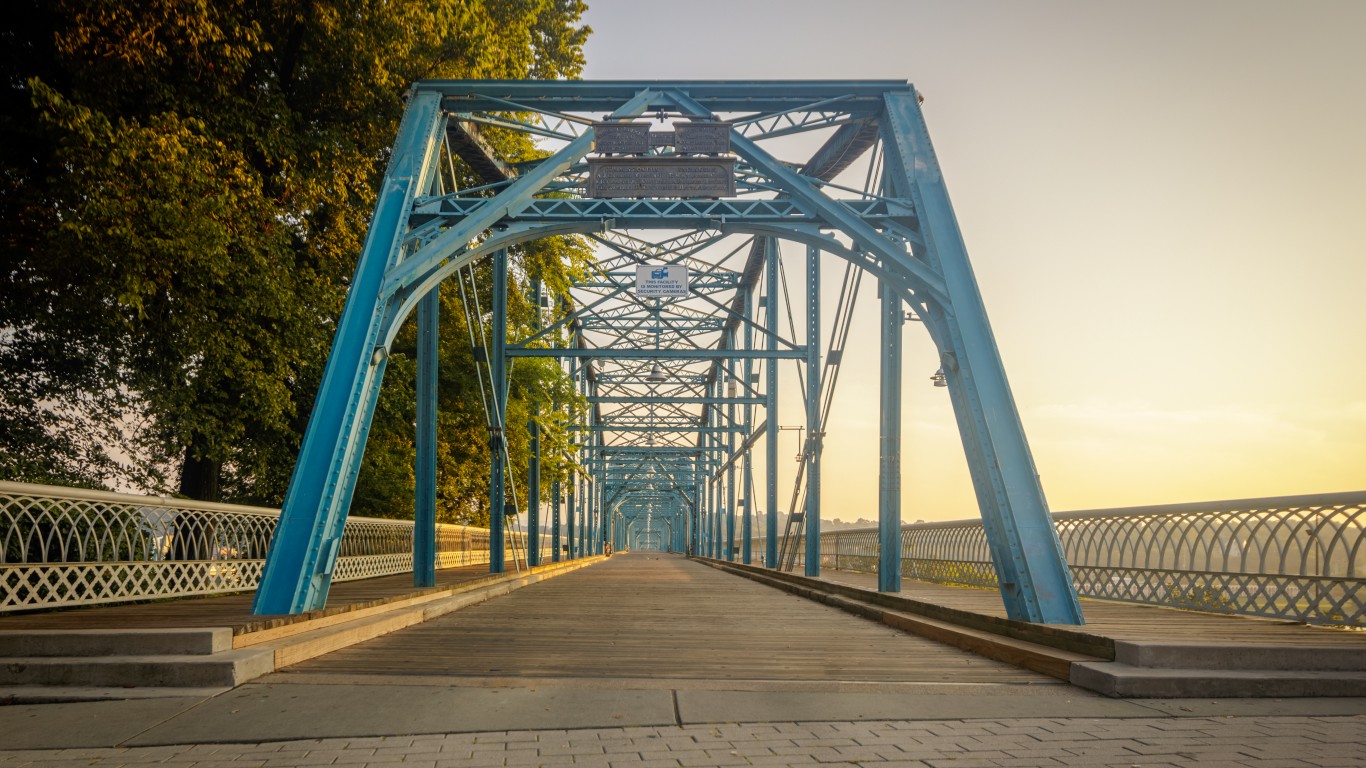
40. Tennessee
> Share of bridges in poor condition: 4.4%
> Total bridges in poor condition: 881 — 20th most
> Total bridges in Tennessee: 20,235 — 10th most
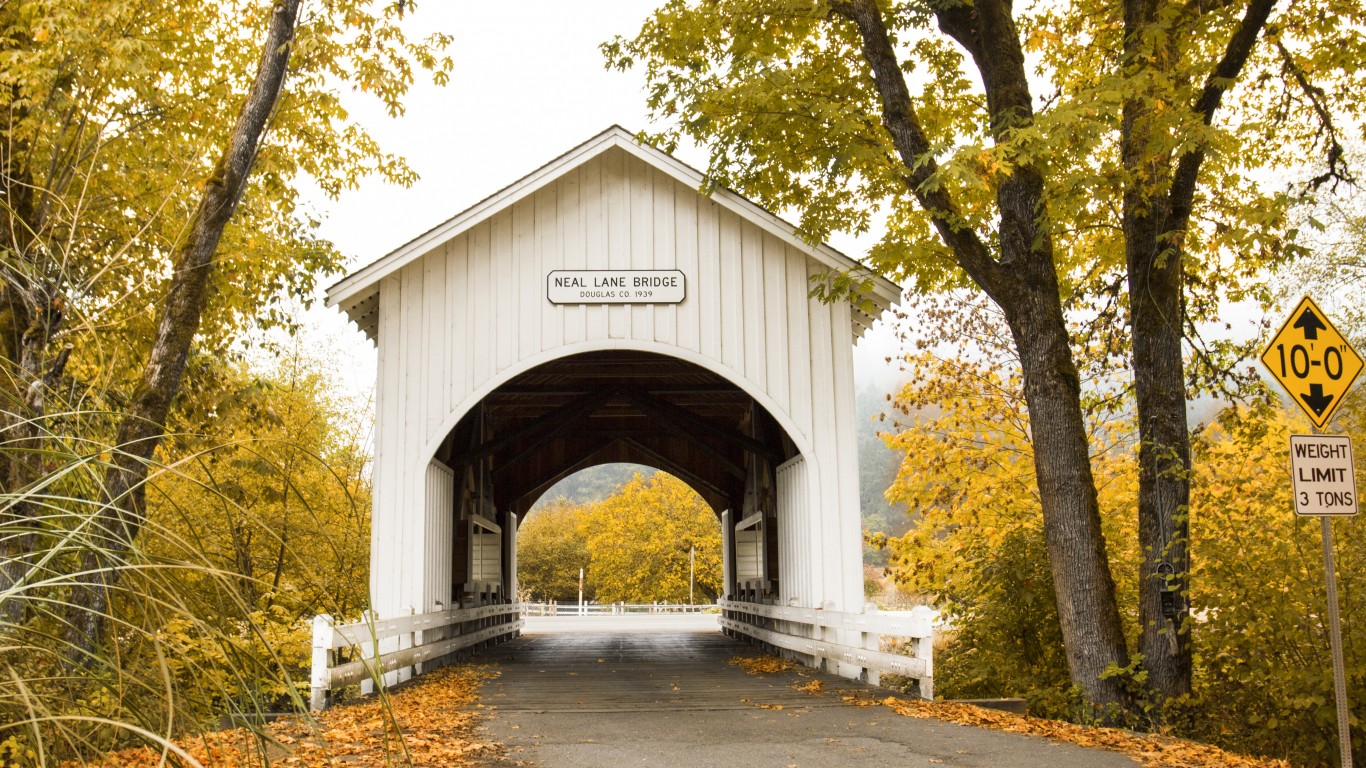
39. Oregon
> Share of bridges in poor condition: 4.8%
> Total bridges in poor condition: 395 — 18th fewest
> Total bridges in Oregon: 8,214 — 21st fewest
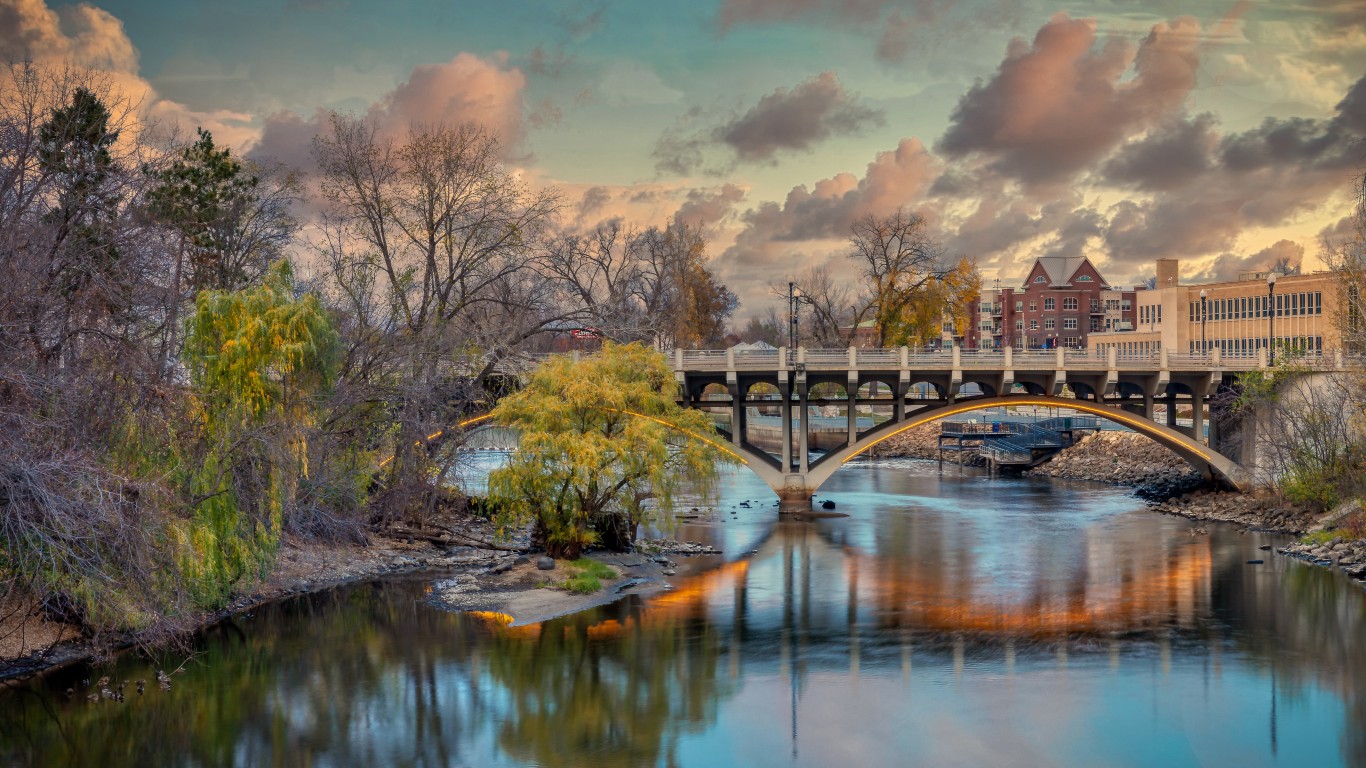
38. Minnesota
> Share of bridges in poor condition: 4.9%
> Total bridges in poor condition: 661 — 24th most
> Total bridges in Minnesota: 13,471 — 21st most
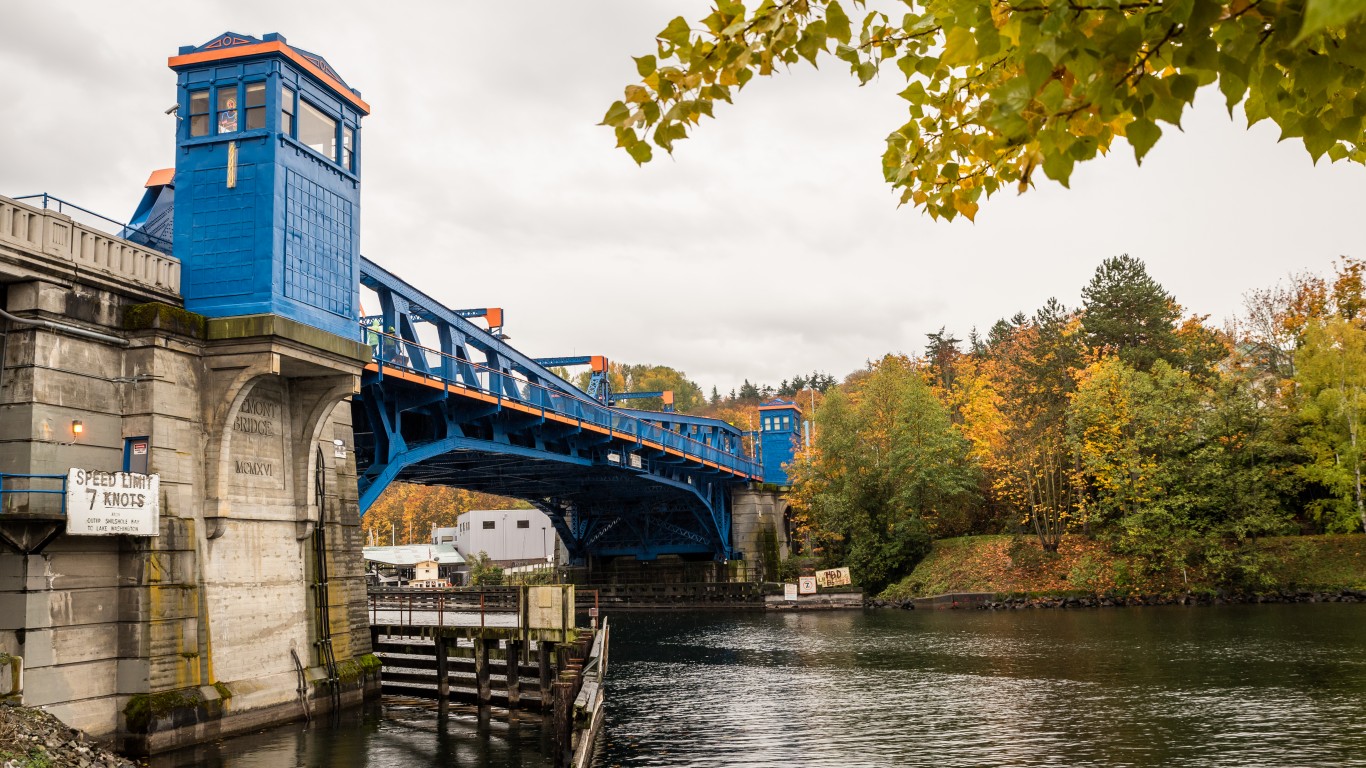
37. Washington
> Share of bridges in poor condition: 5.0%
> Total bridges in poor condition: 416 — 20th fewest
> Total bridges in Washington: 8,338 — 22nd fewest
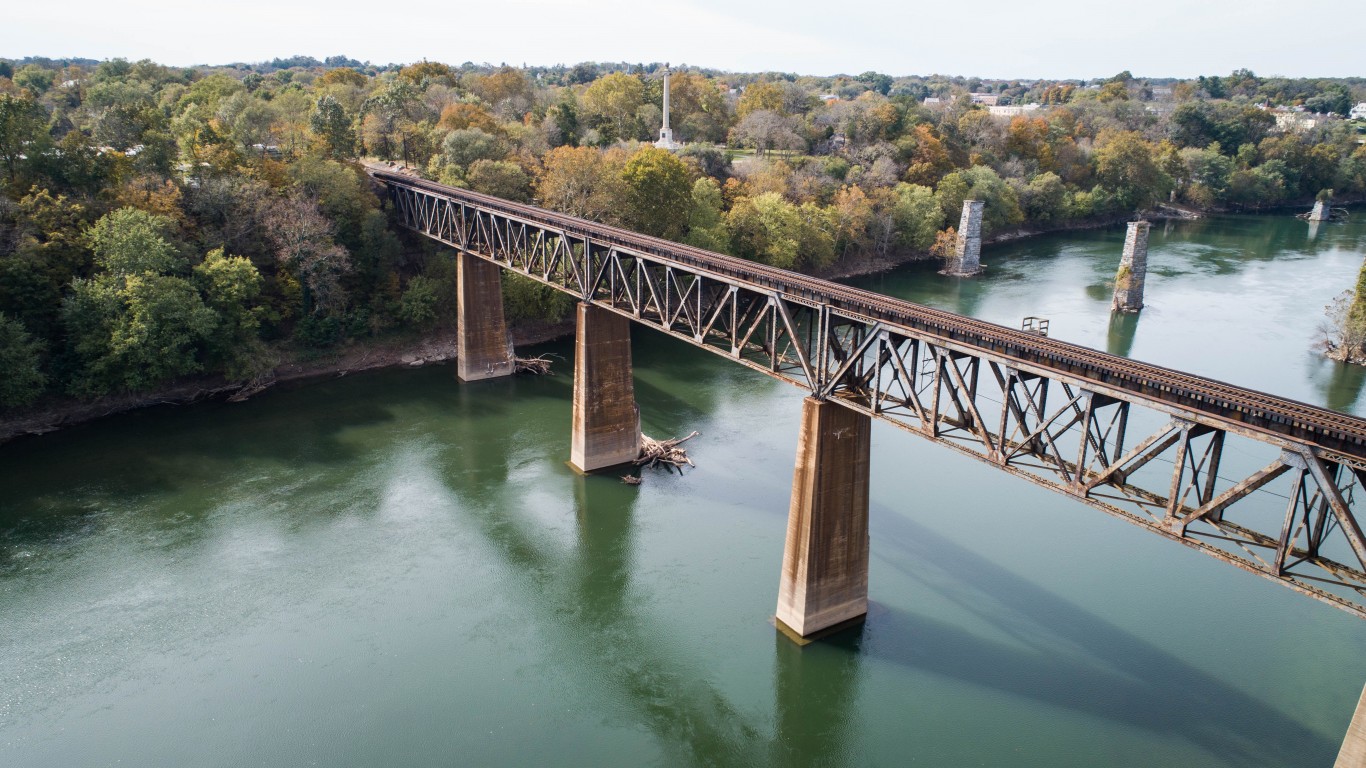
36. Maryland
> Share of bridges in poor condition: 5.0%
> Total bridges in poor condition: 273 — 13th fewest
> Total bridges in Maryland: 5,430 — 17th fewest
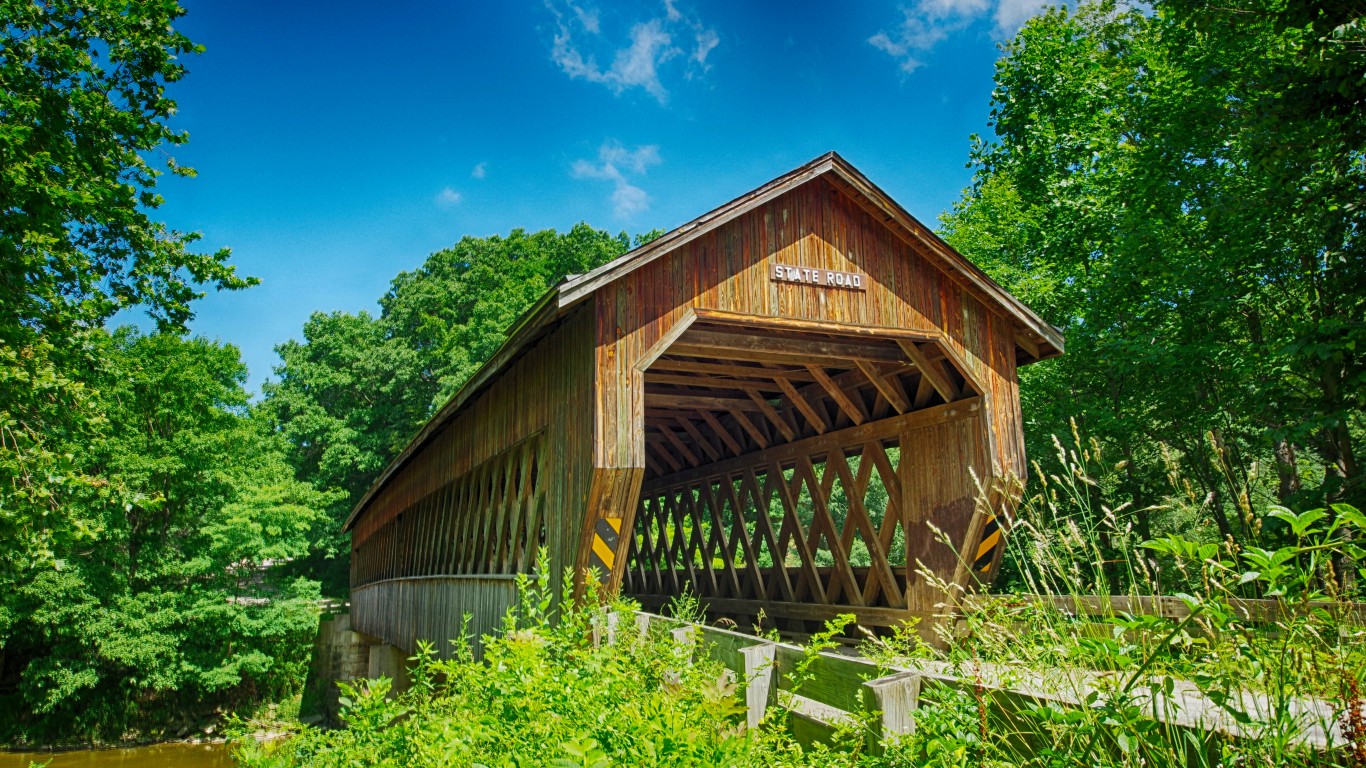
35. Ohio
> Share of bridges in poor condition: 5.1%
> Total bridges in poor condition: 1,377 — 12th most
> Total bridges in Ohio: 27,072 — 2nd most
34. Arkansas
> Share of bridges in poor condition: 5.1%
> Total bridges in poor condition: 663 — 23rd most
> Total bridges in Arkansas: 12,946 — 22nd most
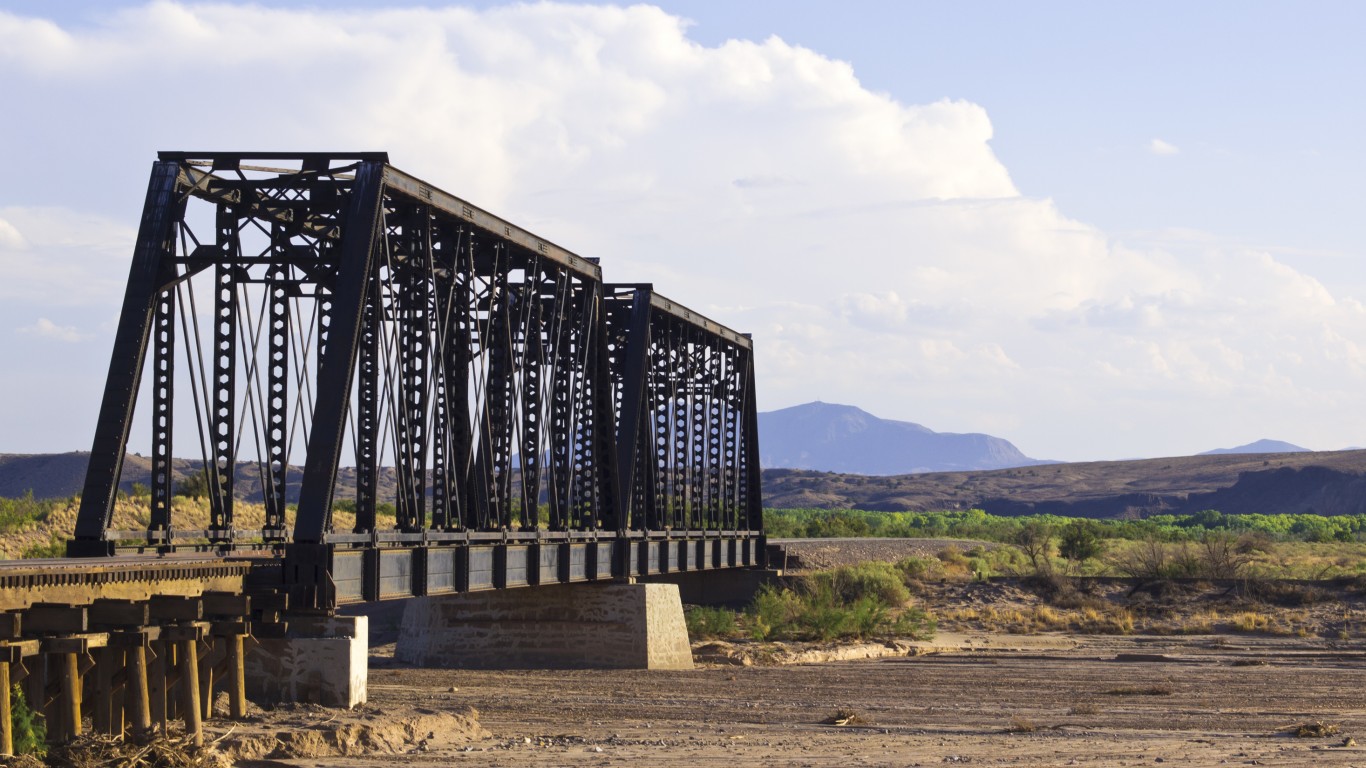
33. New Mexico
> Share of bridges in poor condition: 5.1%
> Total bridges in poor condition: 207 — 9th fewest
> Total bridges in New Mexico: 4,024 — 11th fewest
32. Kansas
> Share of bridges in poor condition: 5.3%
> Total bridges in poor condition: 1,321 — 13th most
> Total bridges in Kansas: 24,948 — 5th most
31. Colorado
> Share of bridges in poor condition: 5.4%
> Total bridges in poor condition: 481 — 23rd fewest
> Total bridges in Colorado: 8,829 — 24th fewest
30. Connecticut
> Share of bridges in poor condition: 5.7%
> Total bridges in poor condition: 248 — 12th fewest
> Total bridges in Connecticut: 4,357 — 13th fewest
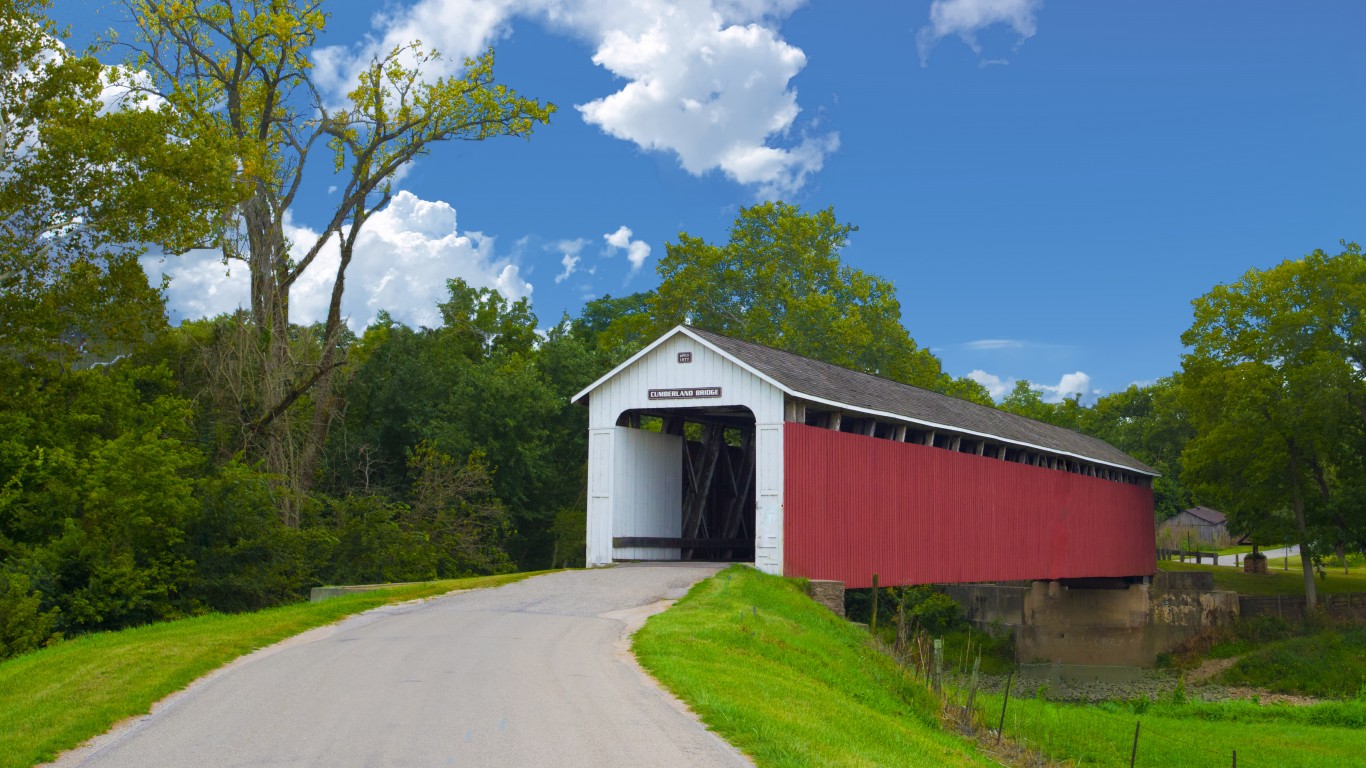
29. Indiana
> Share of bridges in poor condition: 5.7%
> Total bridges in poor condition: 1,111 — 16th most
> Total bridges in Indiana: 19,327 — 11th most
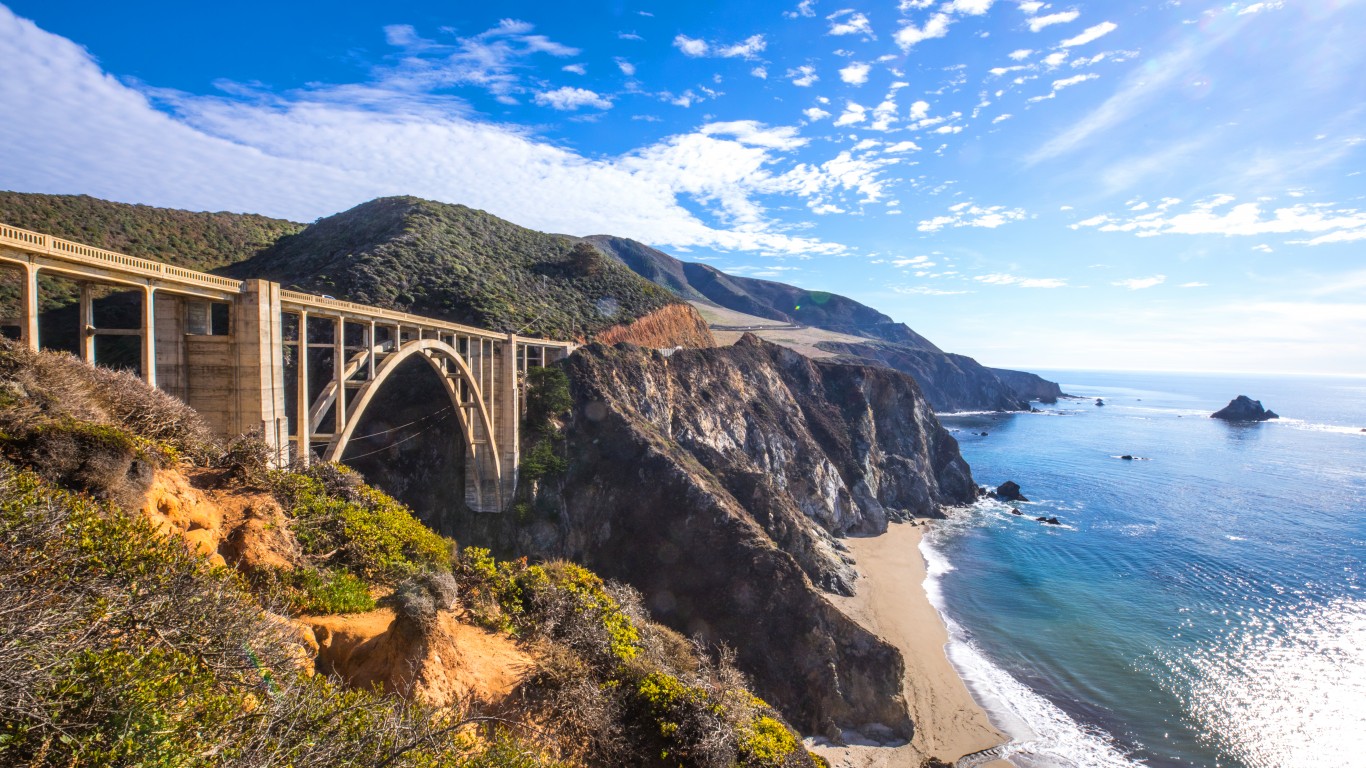
28. California
> Share of bridges in poor condition: 6.0%
> Total bridges in poor condition: 1,536 — 9th most
> Total bridges in California: 25,763 — 4th most
27. Idaho
> Share of bridges in poor condition: 6.3%
> Total bridges in poor condition: 286 — 14th fewest
> Total bridges in Idaho: 4,522 — 14th fewest
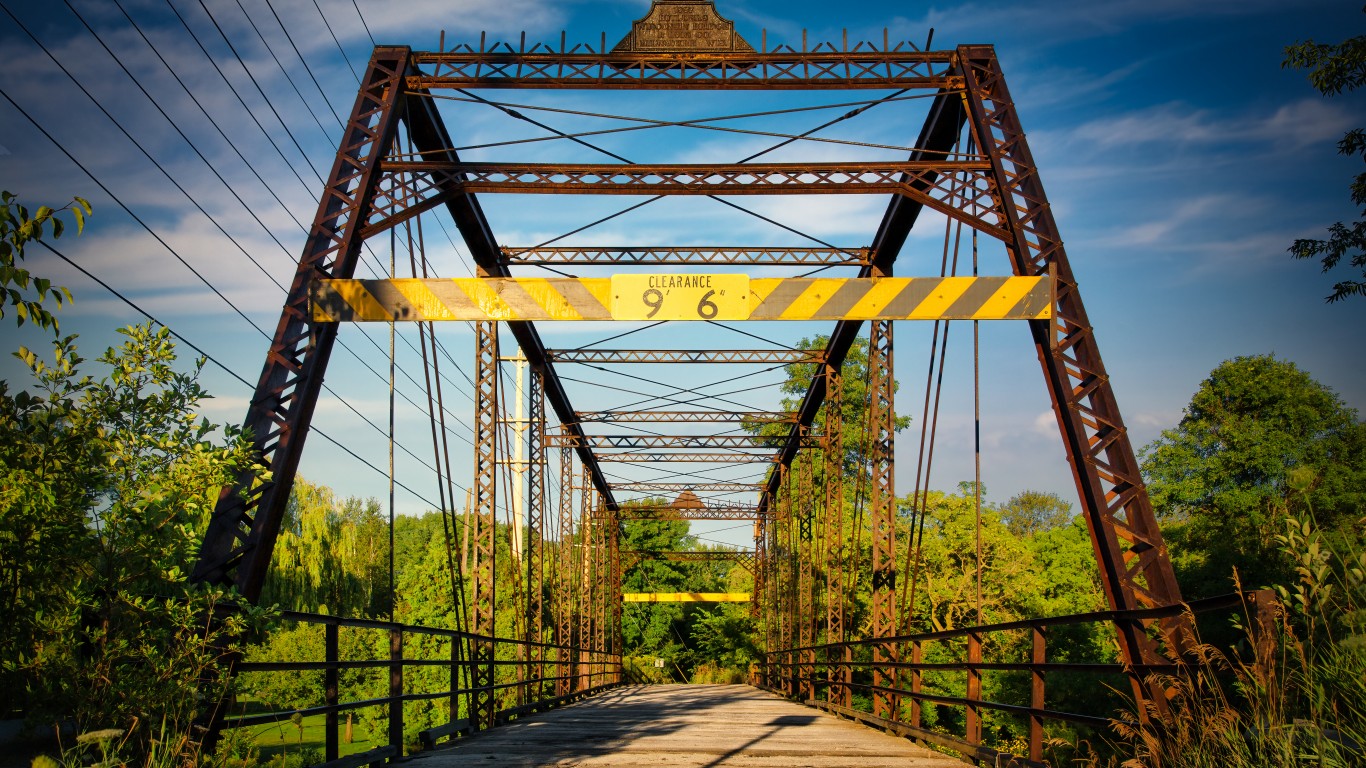
26. Wisconsin
> Share of bridges in poor condition: 6.9%
> Total bridges in poor condition: 979 — 19th most
> Total bridges in Wisconsin: 14,271 — 19th most
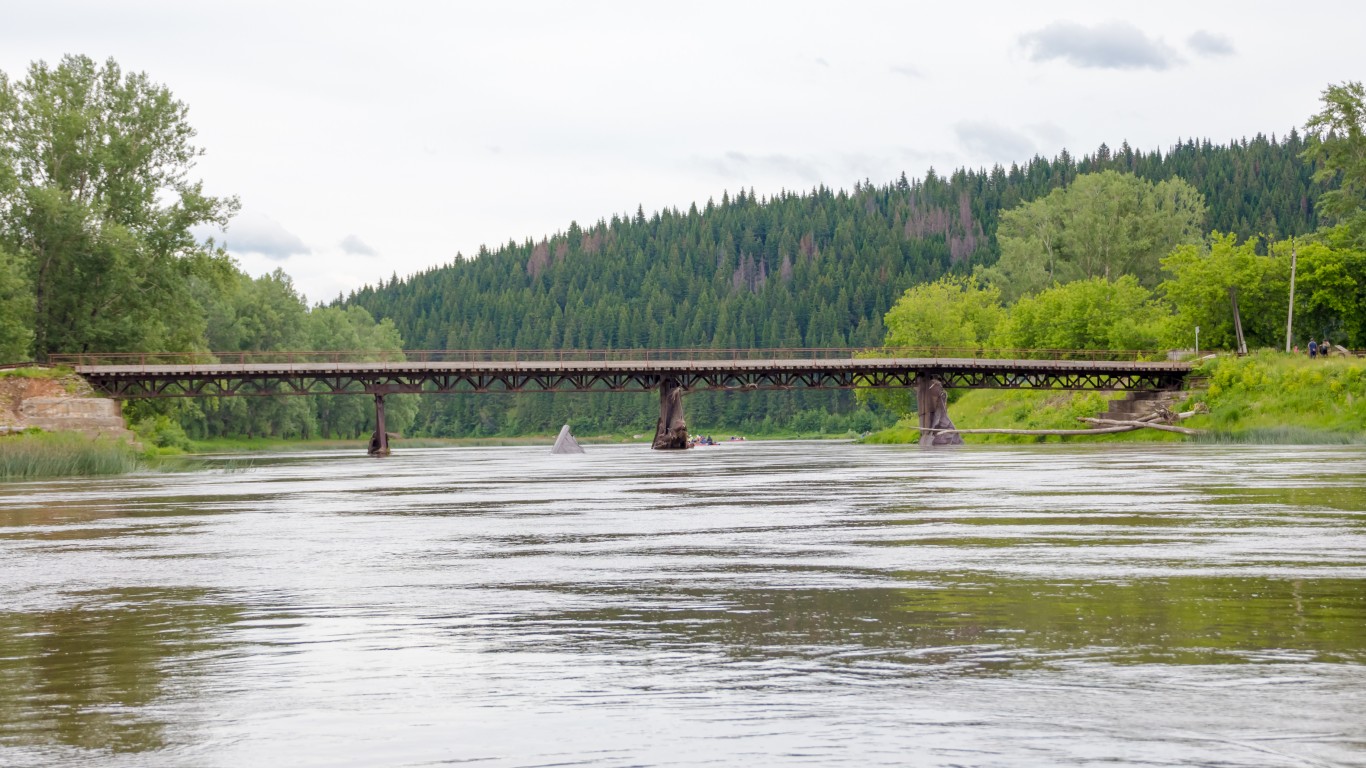
25. Wyoming
> Share of bridges in poor condition: 7.0%
> Total bridges in poor condition: 218 — 11th fewest
> Total bridges in Wyoming: 3,122 — 10th fewest
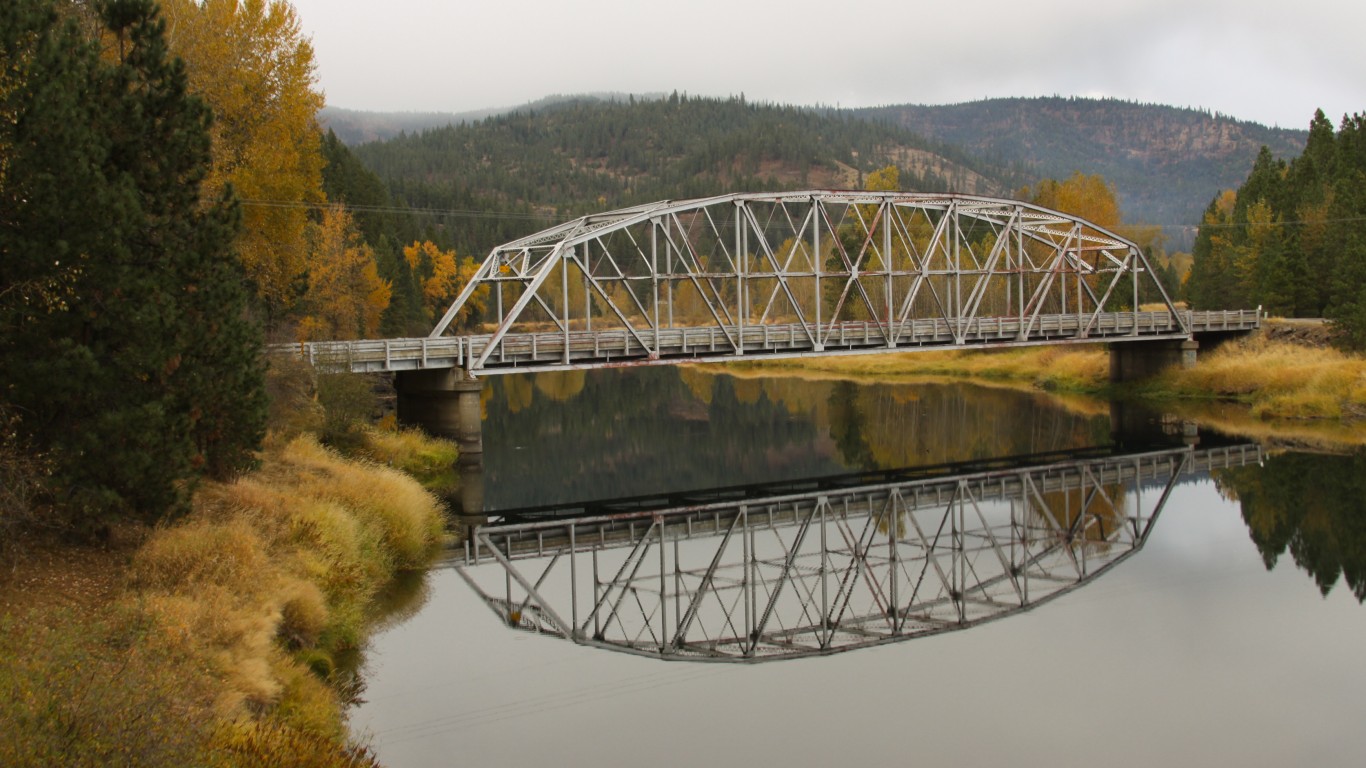
24. Montana
> Share of bridges in poor condition: 7.2%
> Total bridges in poor condition: 377 — 17th fewest
> Total bridges in Montana: 5,271 — 16th fewest
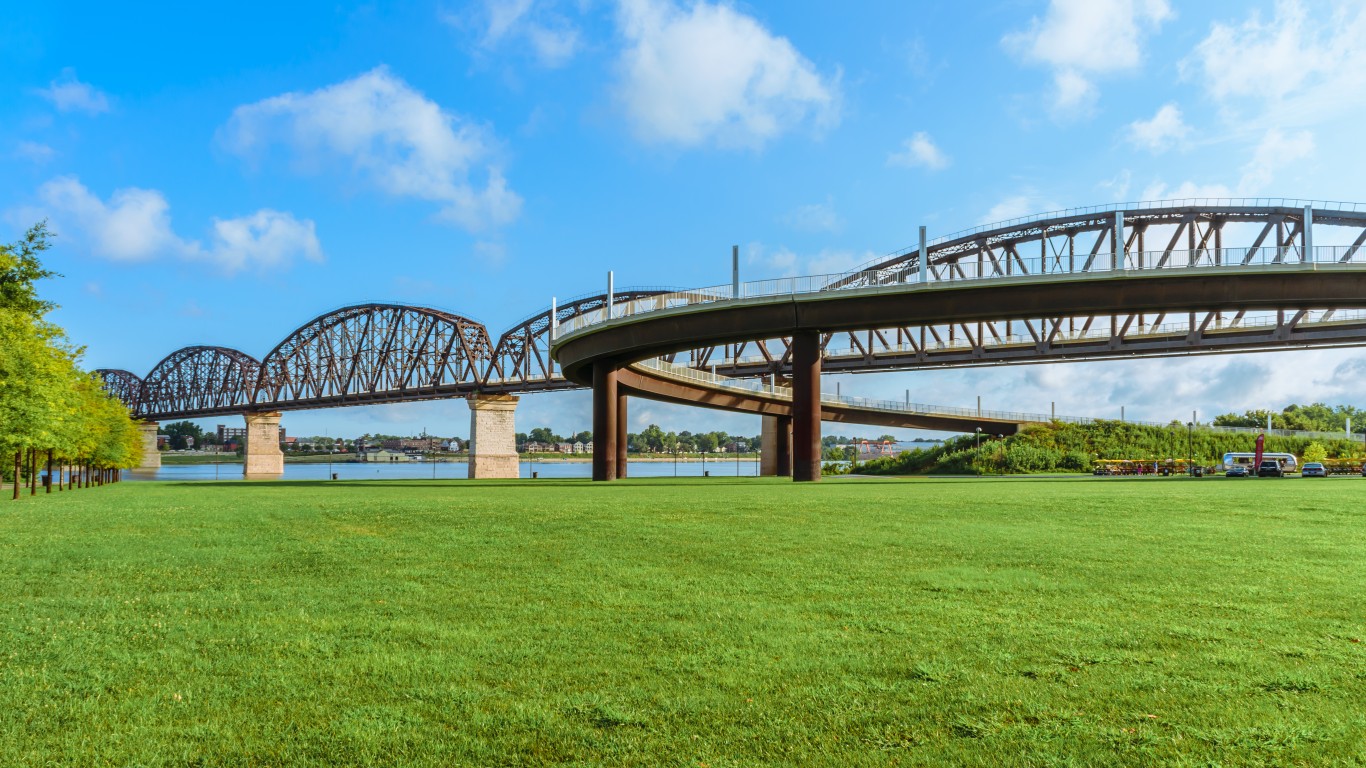
23. Kentucky
> Share of bridges in poor condition: 7.2%
> Total bridges in poor condition: 1,033 — 18th most
> Total bridges in Kentucky: 14,422 — 18th most
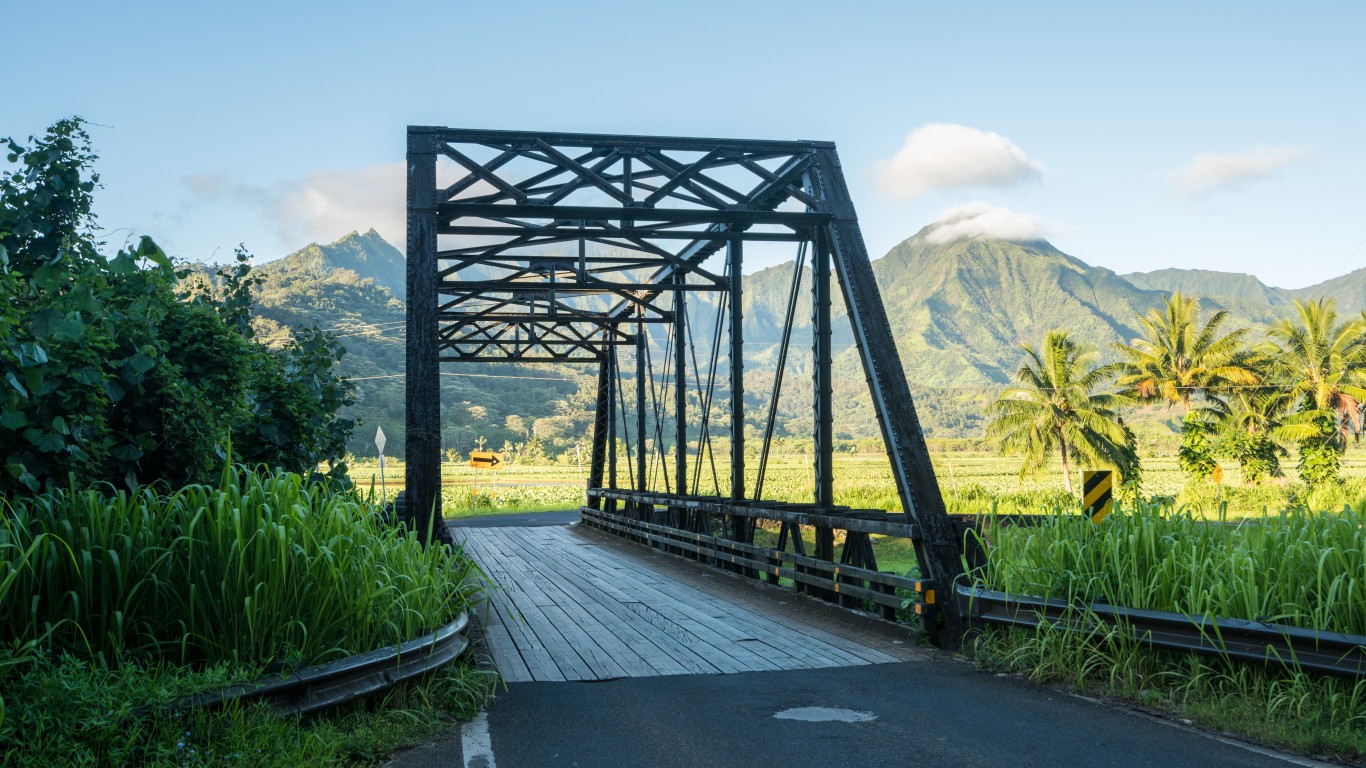
22. Hawaii
> Share of bridges in poor condition: 7.3%
> Total bridges in poor condition: 84 — 5th fewest
> Total bridges in Hawaii: 1,153 — 3rd fewest
21. New Jersey
> Share of bridges in poor condition: 7.4%
> Total bridges in poor condition: 502 — 24th fewest
> Total bridges in New Jersey: 6,801 — 19th fewest
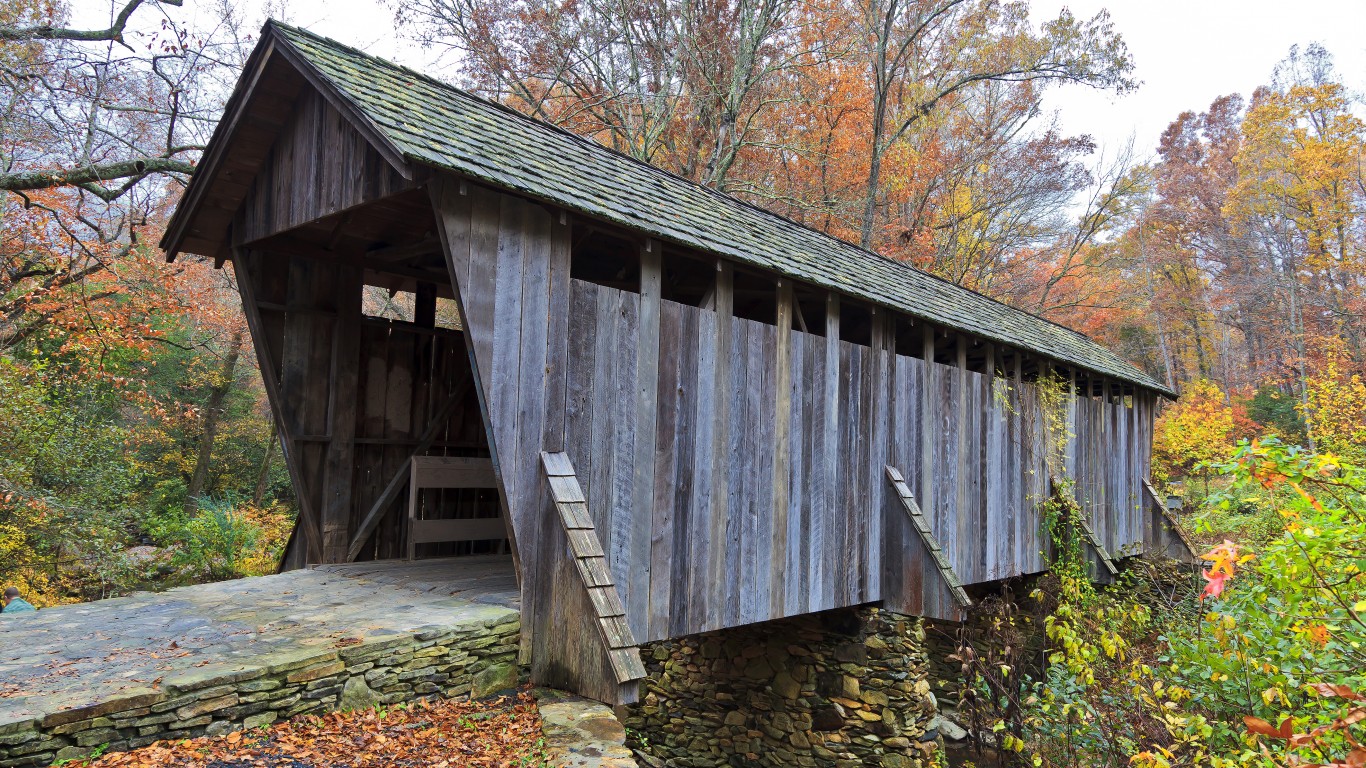
20. North Carolina
> Share of bridges in poor condition: 7.8%
> Total bridges in poor condition: 1,460 — 10th most
> Total bridges in North Carolina: 18,749 — 12th most
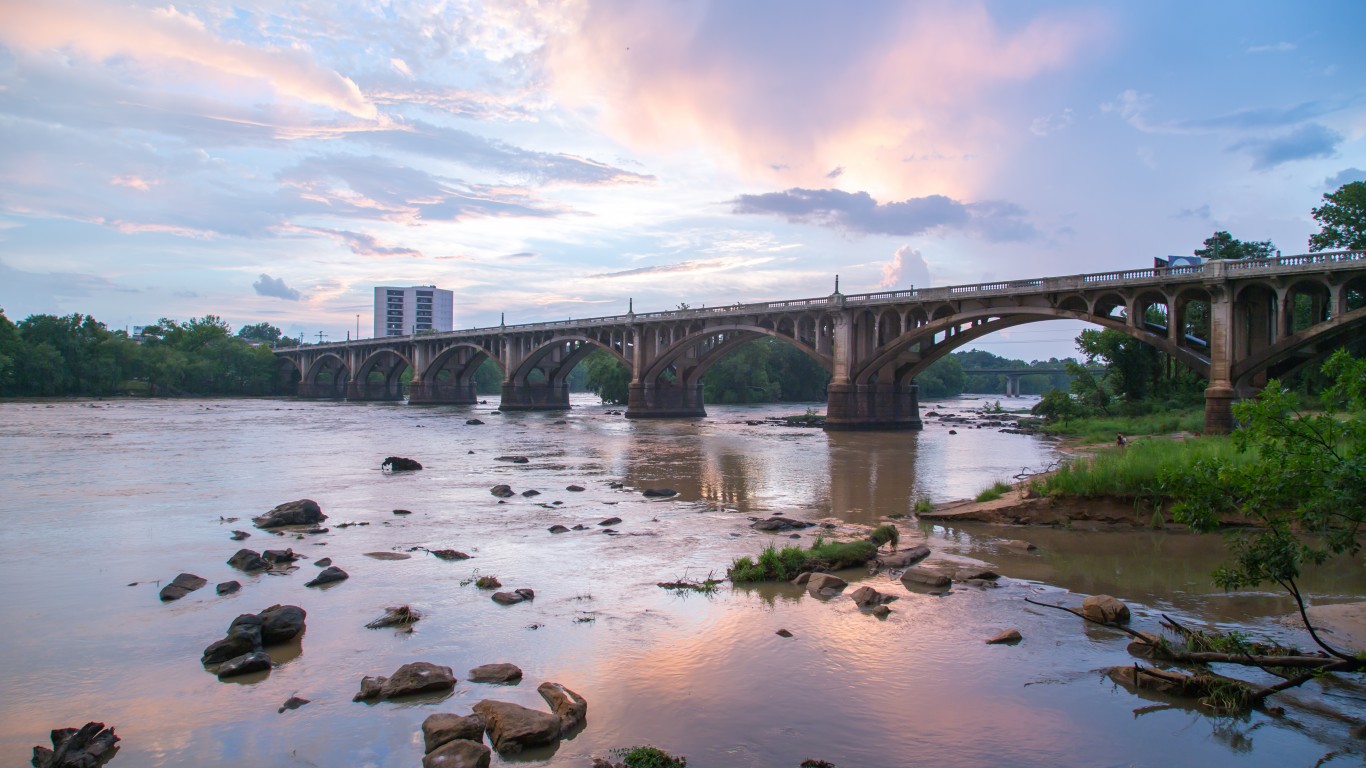
19. South Carolina
> Share of bridges in poor condition: 7.9%
> Total bridges in poor condition: 745 — 22nd most
> Total bridges in South Carolina: 9,455 — 25th fewest
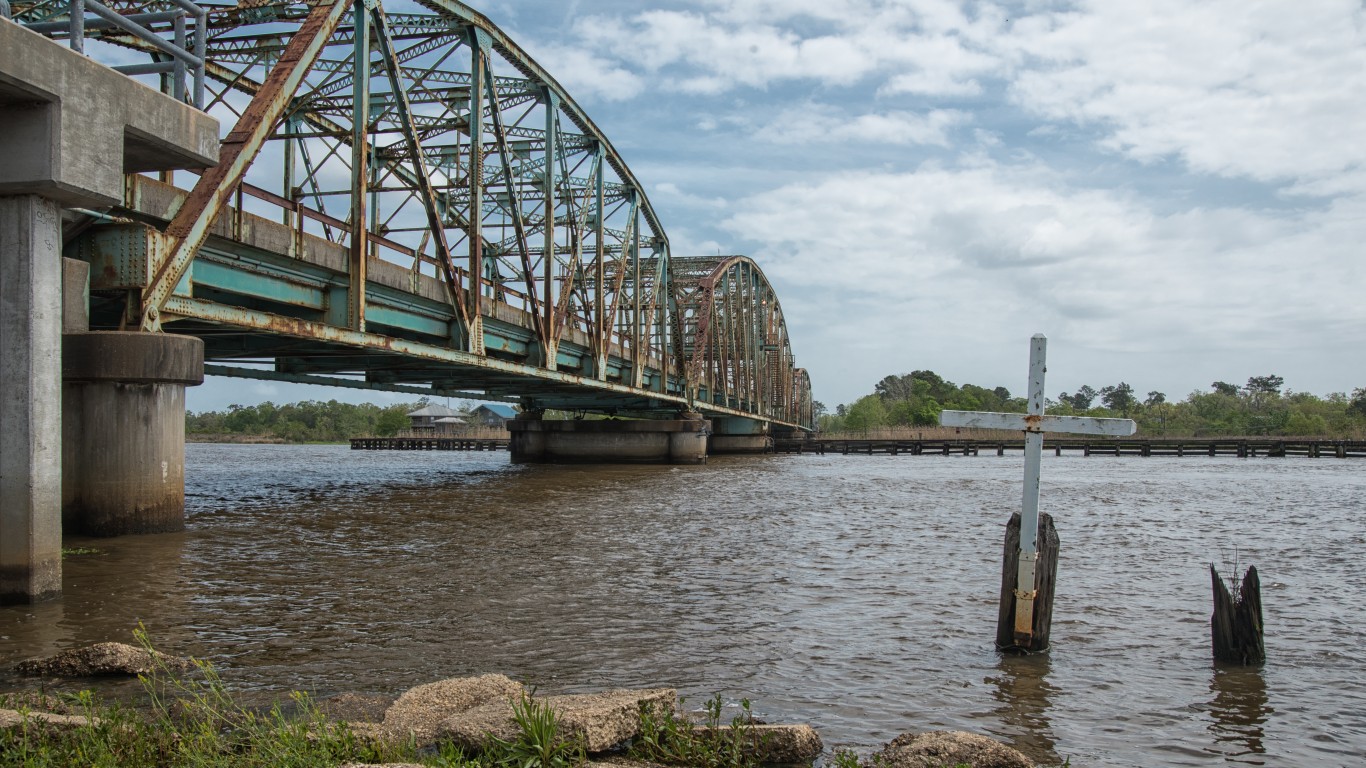
18. Mississippi
> Share of bridges in poor condition: 8.2%
> Total bridges in poor condition: 1,386 — 11th most
> Total bridges in Mississippi: 16,878 — 14th most
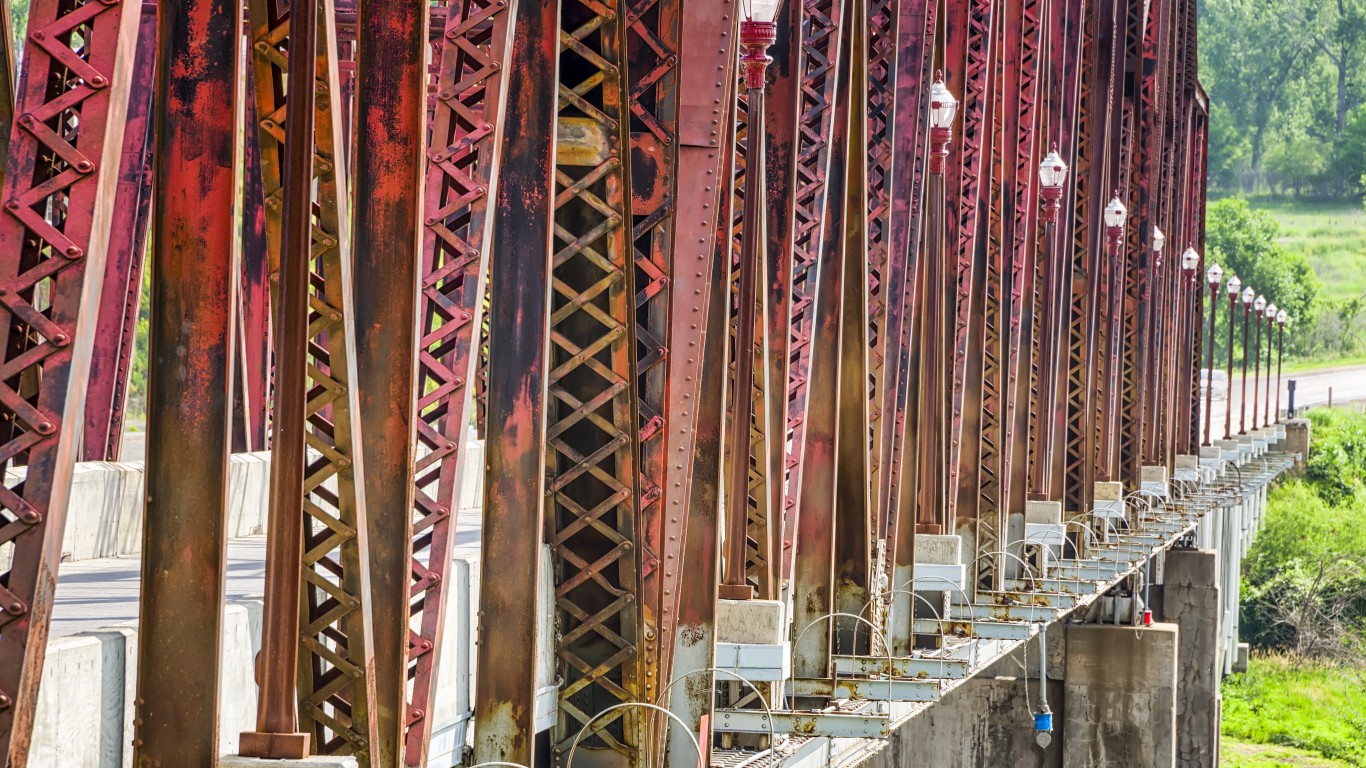
17. Nebraska
> Share of bridges in poor condition: 8.5%
> Total bridges in poor condition: 1,302 — 14th most
> Total bridges in Nebraska: 15,348 — 16th most
16. New Hampshire
> Share of bridges in poor condition: 8.6%
> Total bridges in poor condition: 215 — 10th fewest
> Total bridges in New Hampshire: 2,514 — 7th fewest
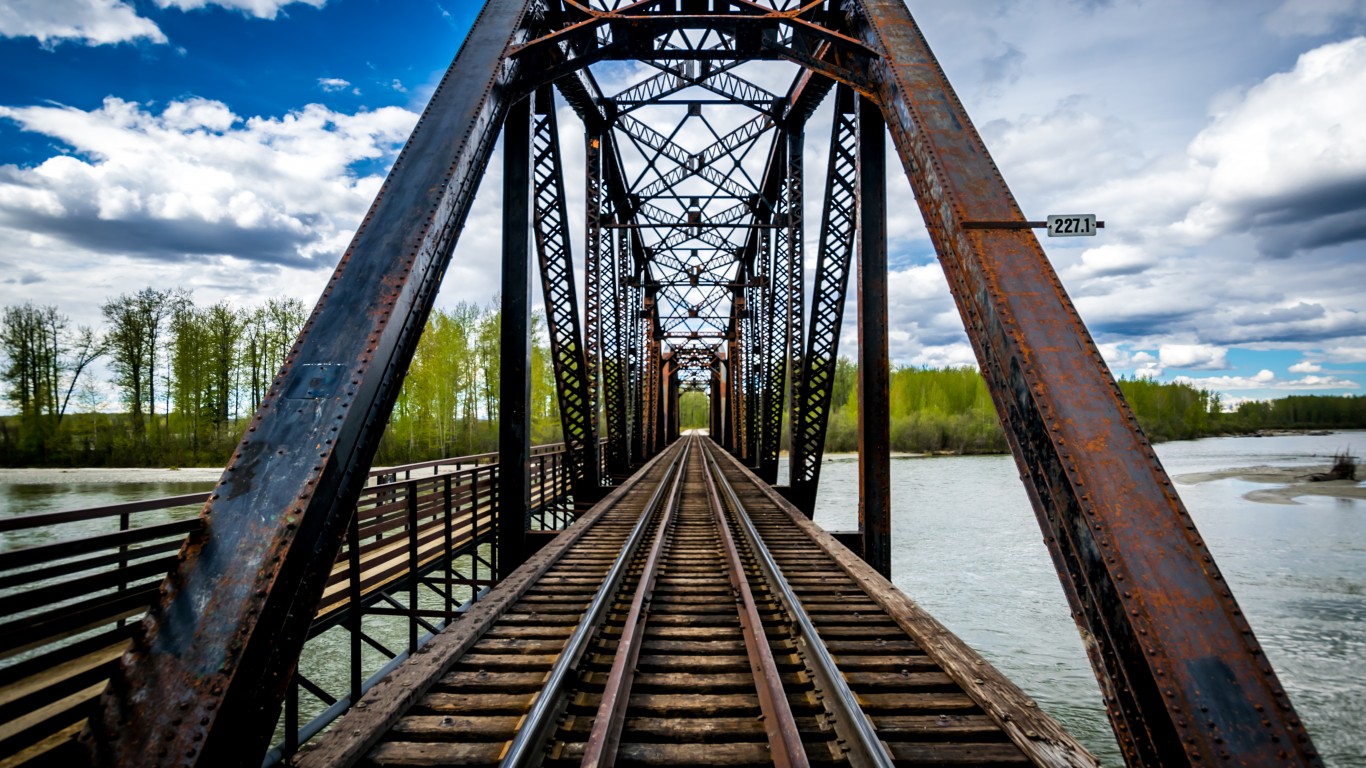
15. Alaska
> Share of bridges in poor condition: 8.6%
> Total bridges in poor condition: 141 — 7th fewest
> Total bridges in Alaska: 1,645 — 4th fewest
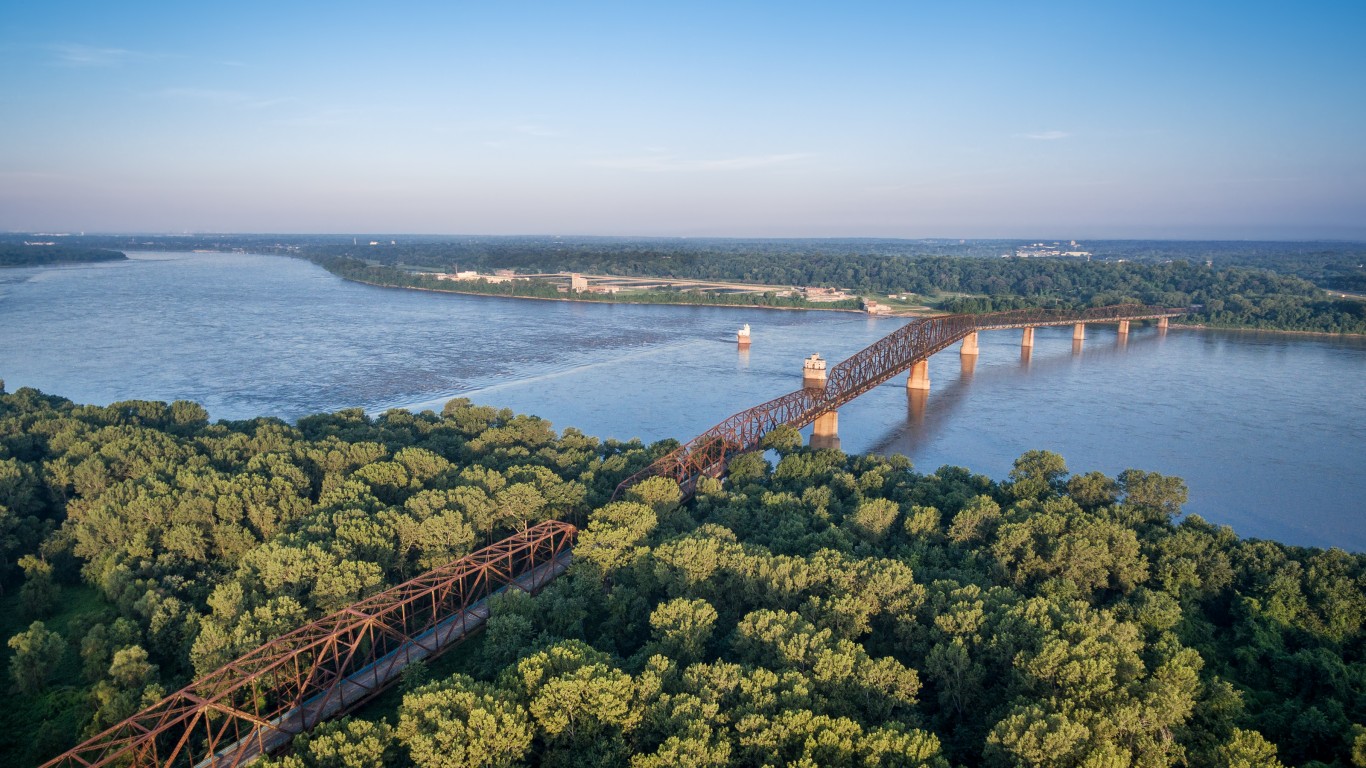
14. Illinois
> Share of bridges in poor condition: 8.8%
> Total bridges in poor condition: 2,374 — 3rd most
> Total bridges in Illinois: 26,848 — 3rd most
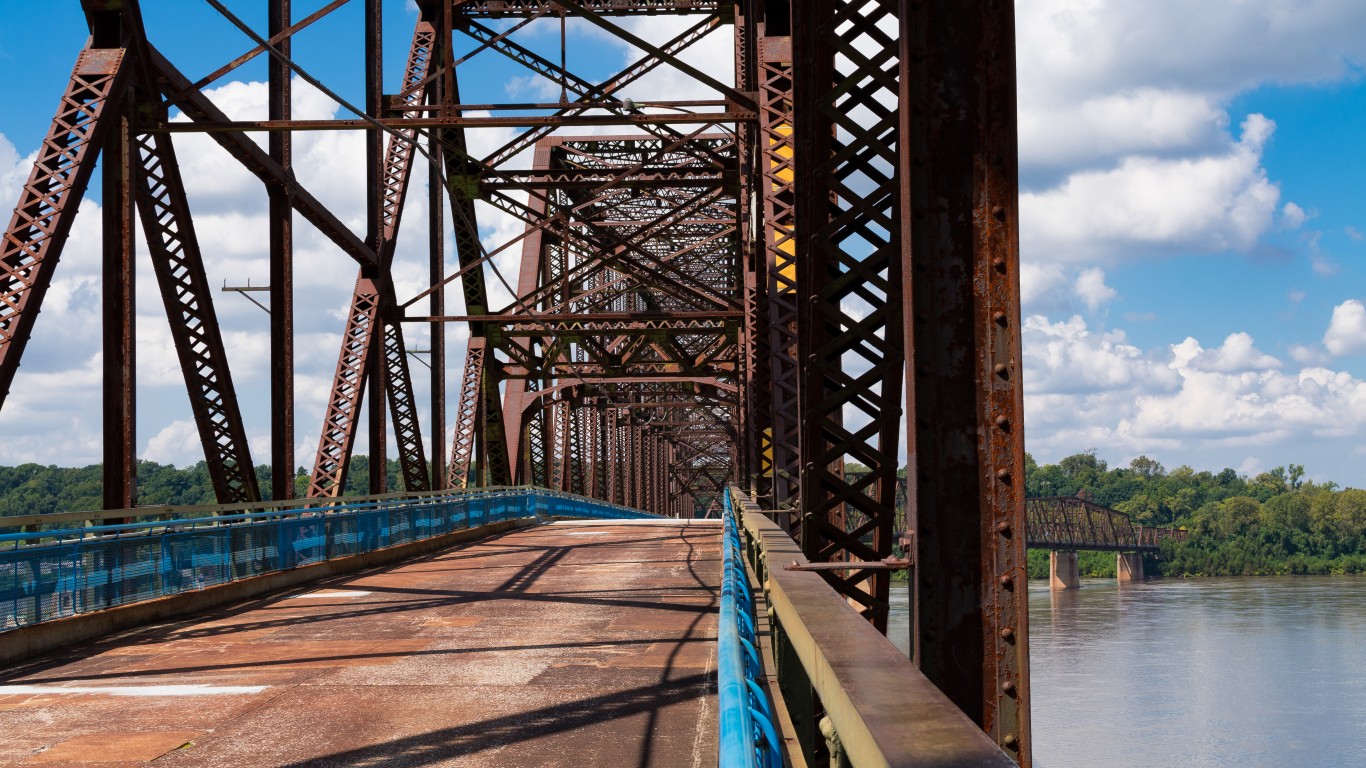
13. Missouri
> Share of bridges in poor condition: 8.9%
> Total bridges in poor condition: 2,190 — 5th most
> Total bridges in Missouri: 24,538 — 6th most
12. Massachusetts
> Share of bridges in poor condition: 9.0%
> Total bridges in poor condition: 472 — 22nd fewest
> Total bridges in Massachusetts: 5,229 — 15th fewest
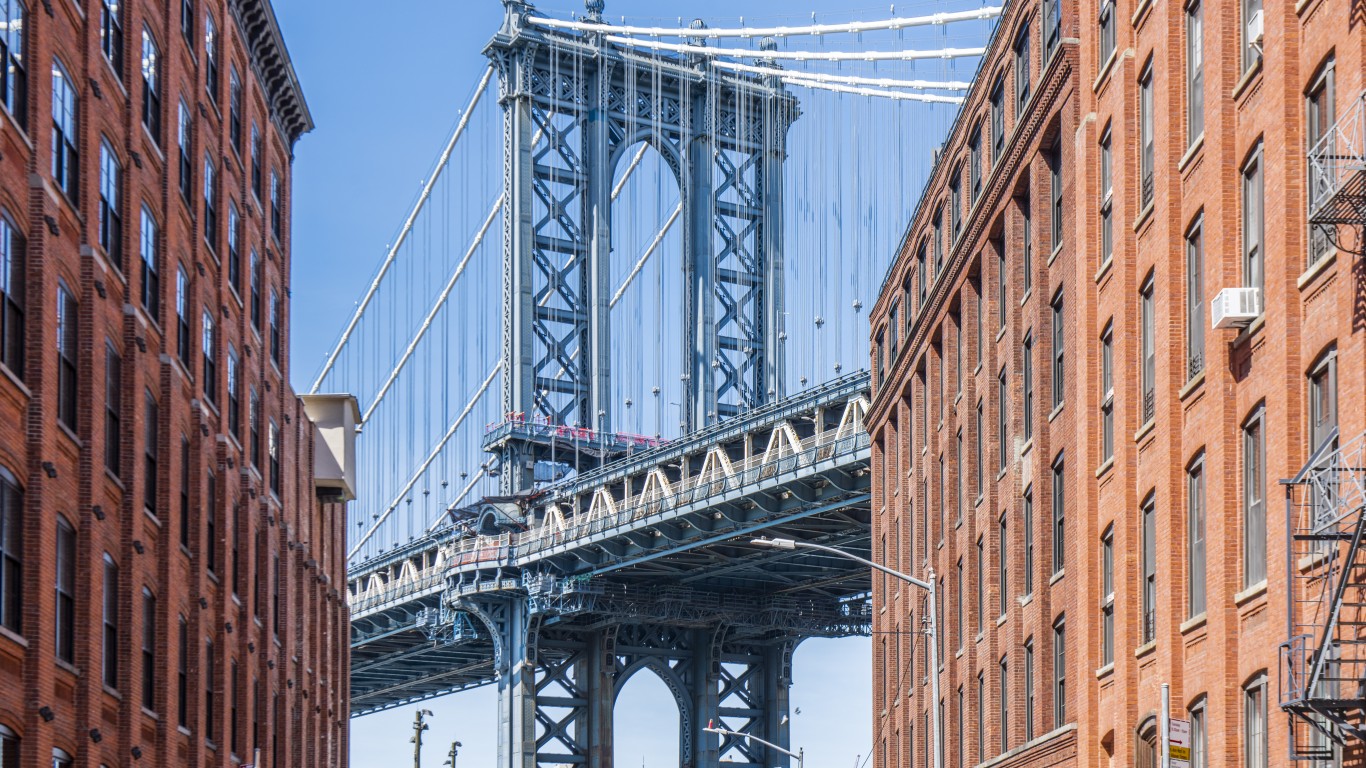
11. New York
> Share of bridges in poor condition: 9.7%
> Total bridges in poor condition: 1,702 — 6th most
> Total bridges in New York: 17,552 — 13th most
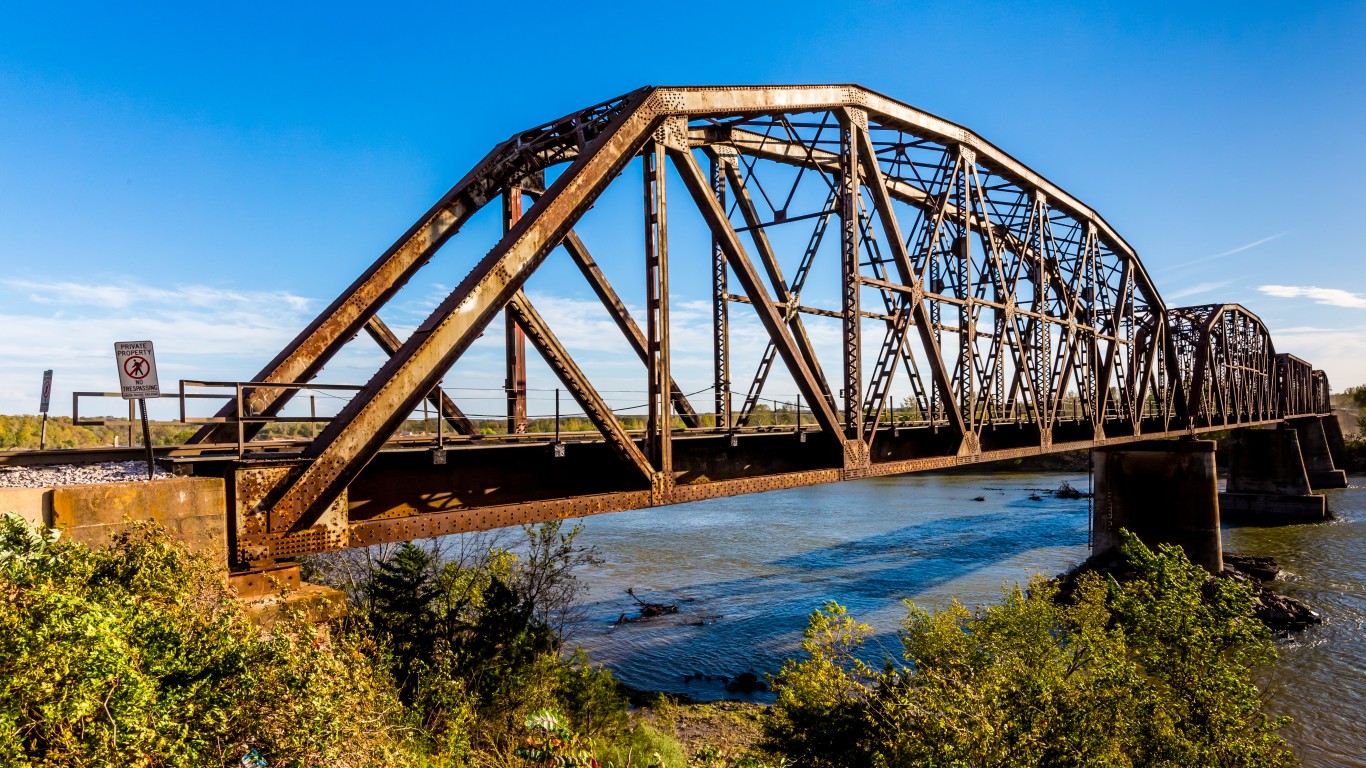
10. Oklahoma
> Share of bridges in poor condition: 10.0%
> Total bridges in poor condition: 2,326 — 4th most
> Total bridges in Oklahoma: 23,155 — 8th most
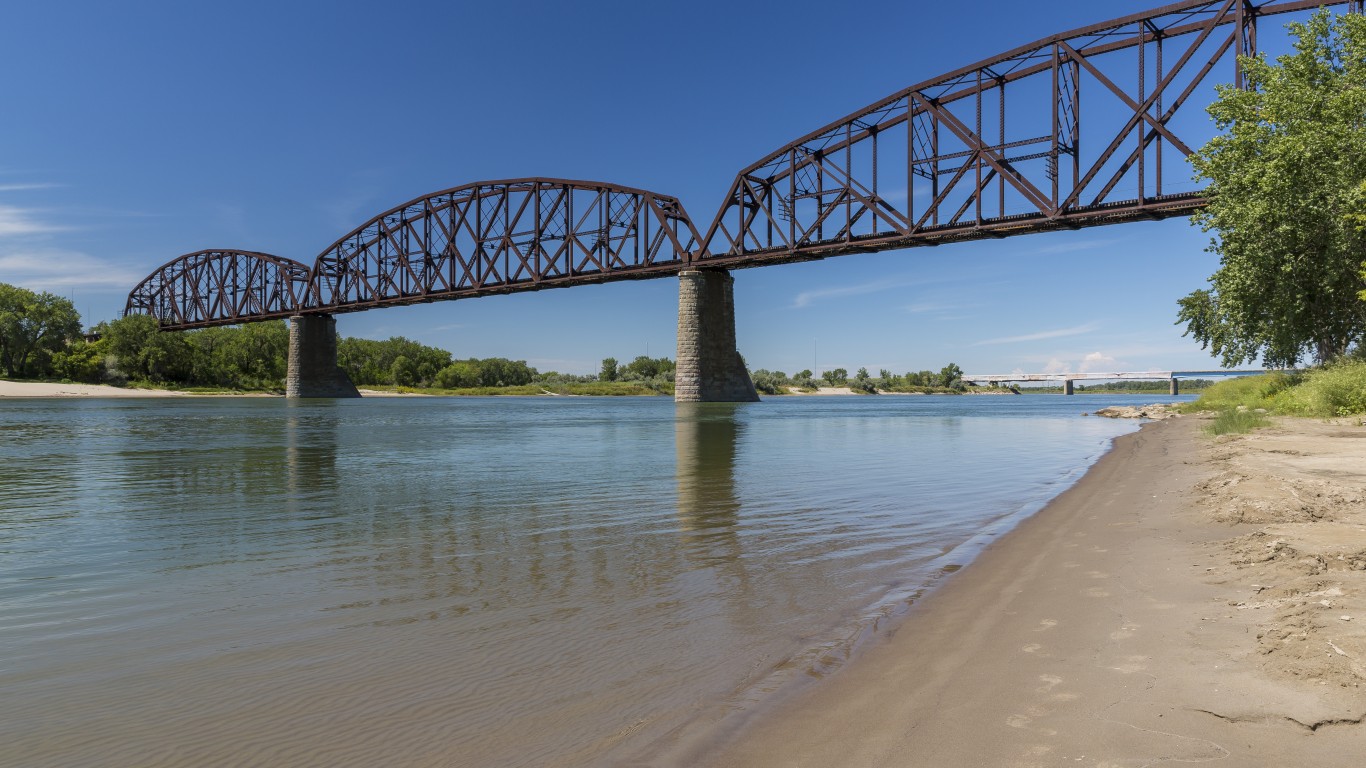
9. North Dakota
> Share of bridges in poor condition: 10.3%
> Total bridges in poor condition: 444 — 21st fewest
> Total bridges in North Dakota: 4,312 — 12th fewest
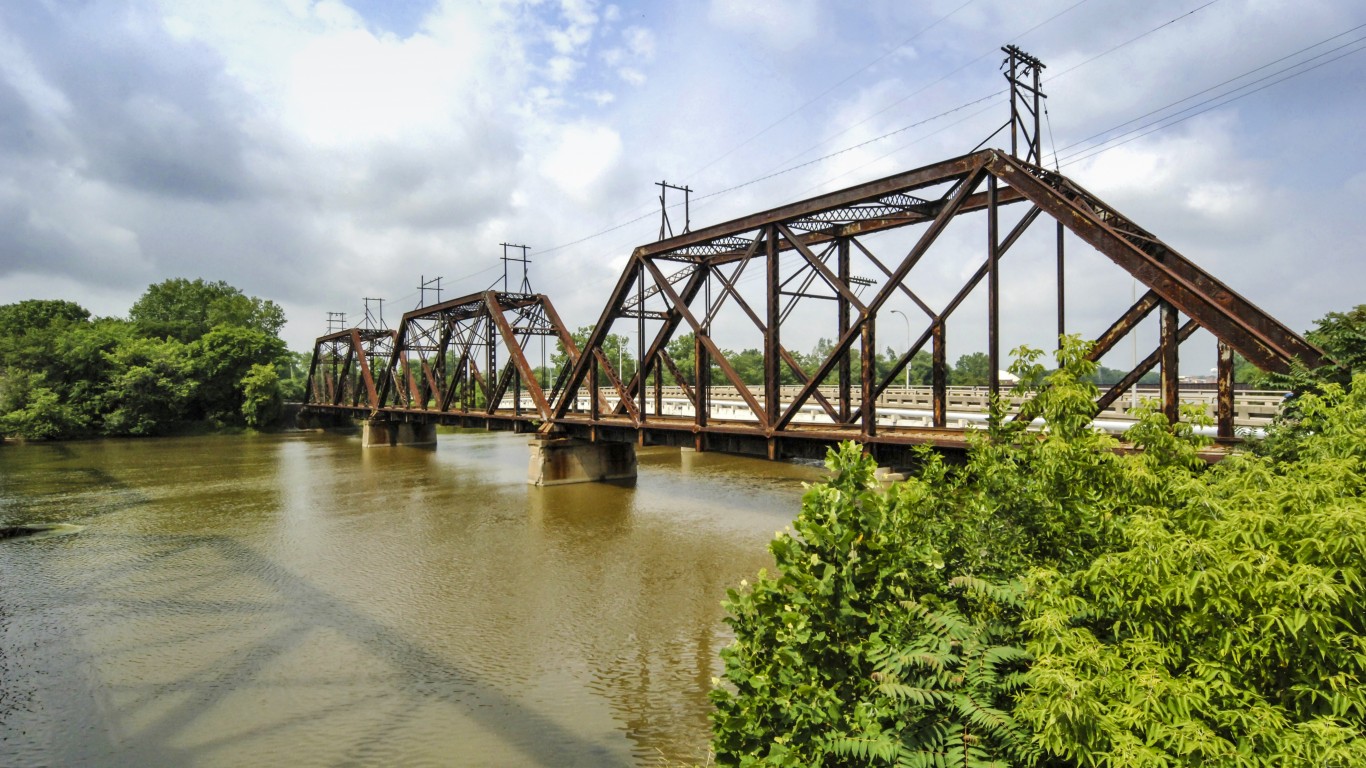
8. Michigan
> Share of bridges in poor condition: 10.8%
> Total bridges in poor condition: 1,219 — 15th most
> Total bridges in Michigan: 11,271 — 25th most
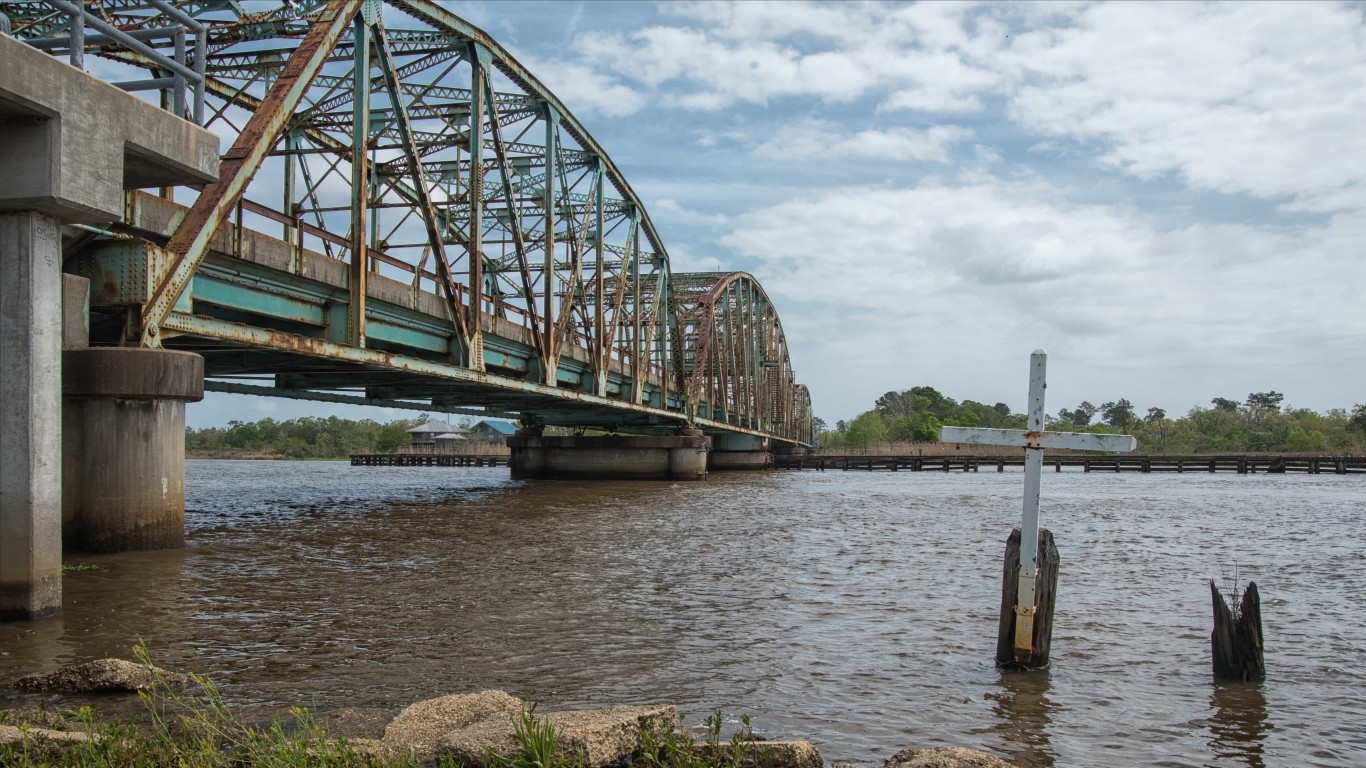
7. Louisiana
> Share of bridges in poor condition: 12.7%
> Total bridges in poor condition: 1,634 — 7th most
> Total bridges in Louisiana: 12,853 — 23rd most
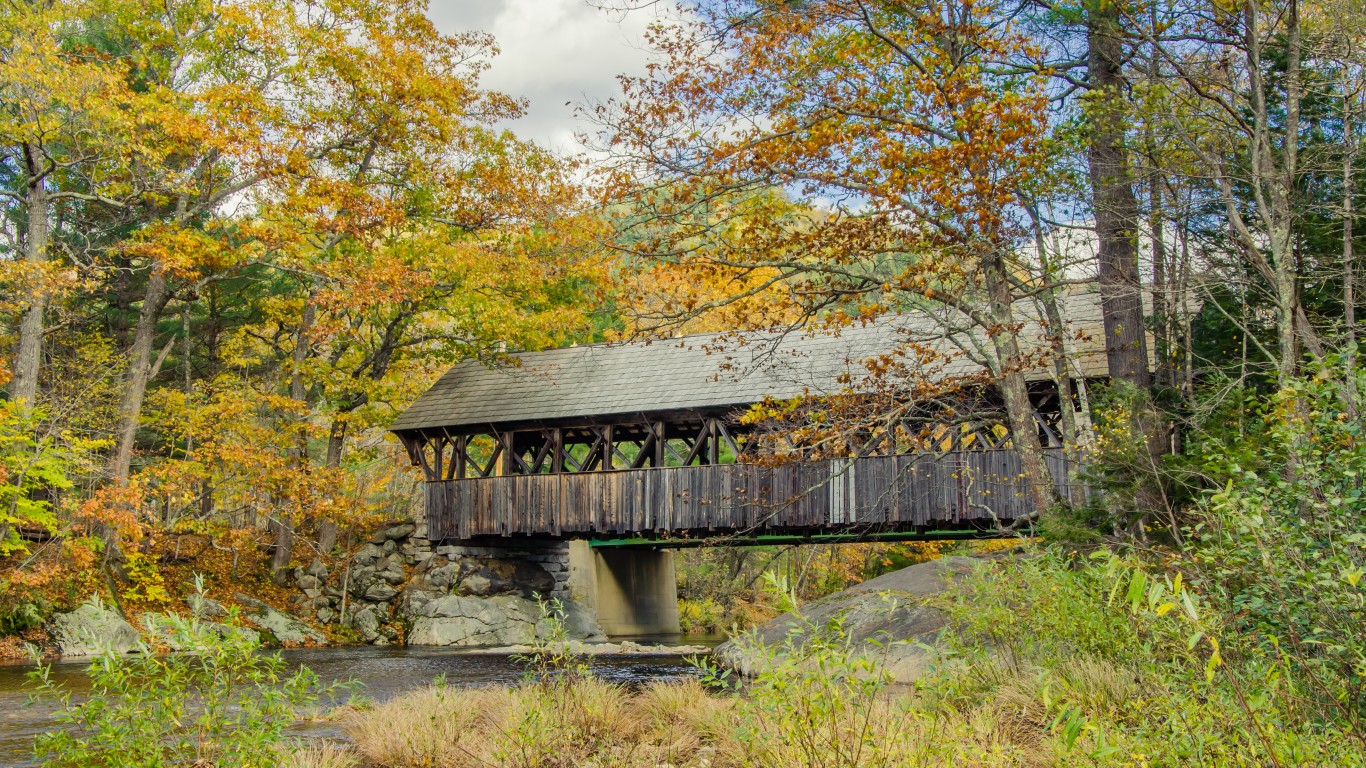
6. Maine
> Share of bridges in poor condition: 12.7%
> Total bridges in poor condition: 315 — 15th fewest
> Total bridges in Maine: 2,472 — 6th fewest
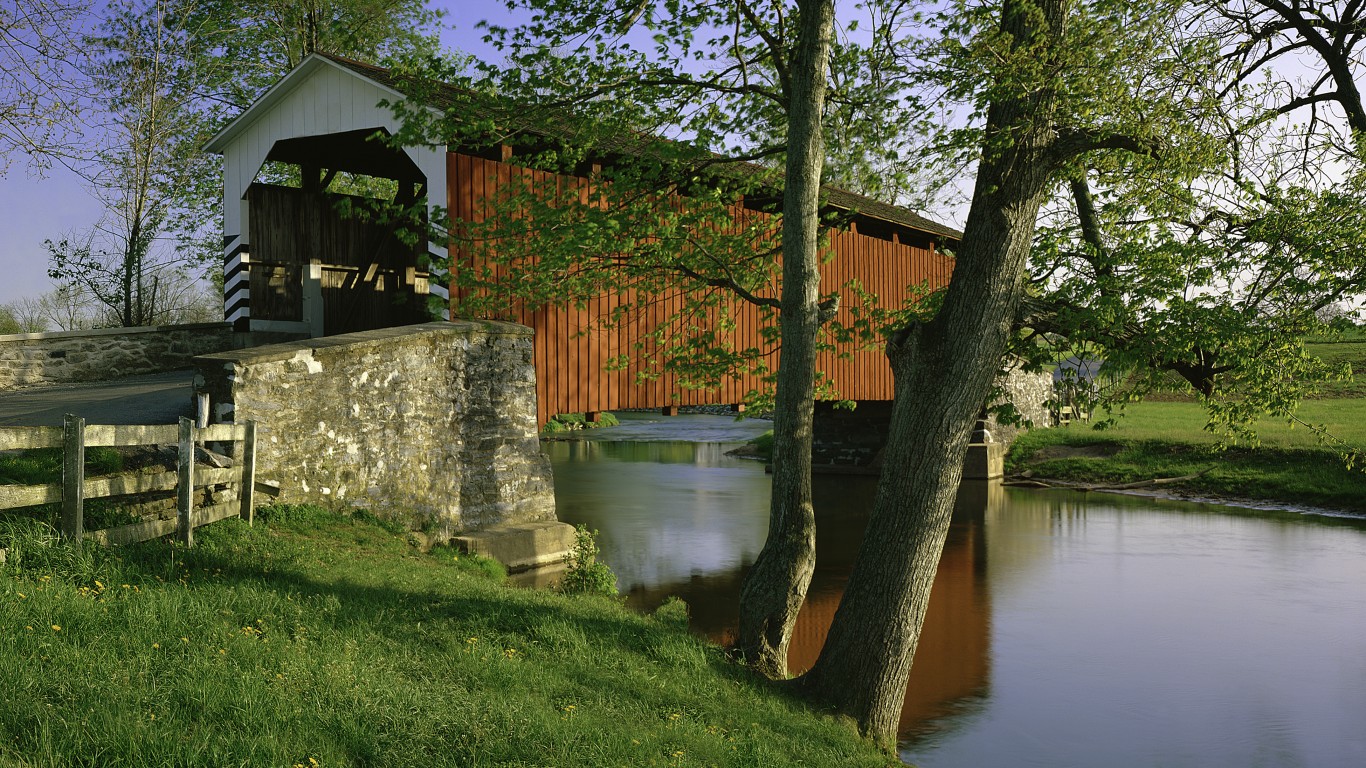
5. Pennsylvania
> Share of bridges in poor condition: 14.6%
> Total bridges in poor condition: 3,353 — 2nd most
> Total bridges in Pennsylvania: 22,965 — 9th most
4. South Dakota
> Share of bridges in poor condition: 17.7%
> Total bridges in poor condition: 1,038 — 17th most
> Total bridges in South Dakota: 5,880 — 18th fewest
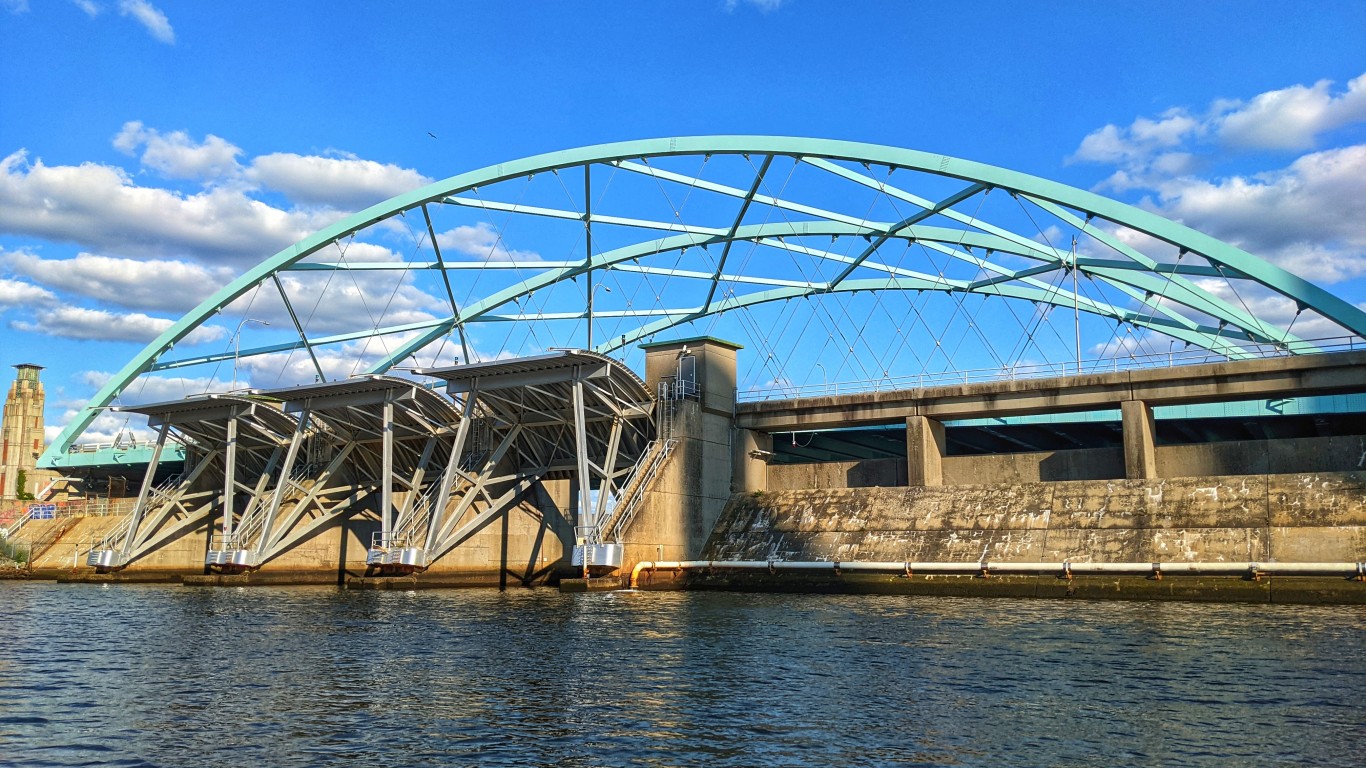
3. Rhode Island
> Share of bridges in poor condition: 19.0%
> Total bridges in poor condition: 148 — 8th fewest
> Total bridges in Rhode Island: 777 — the fewest
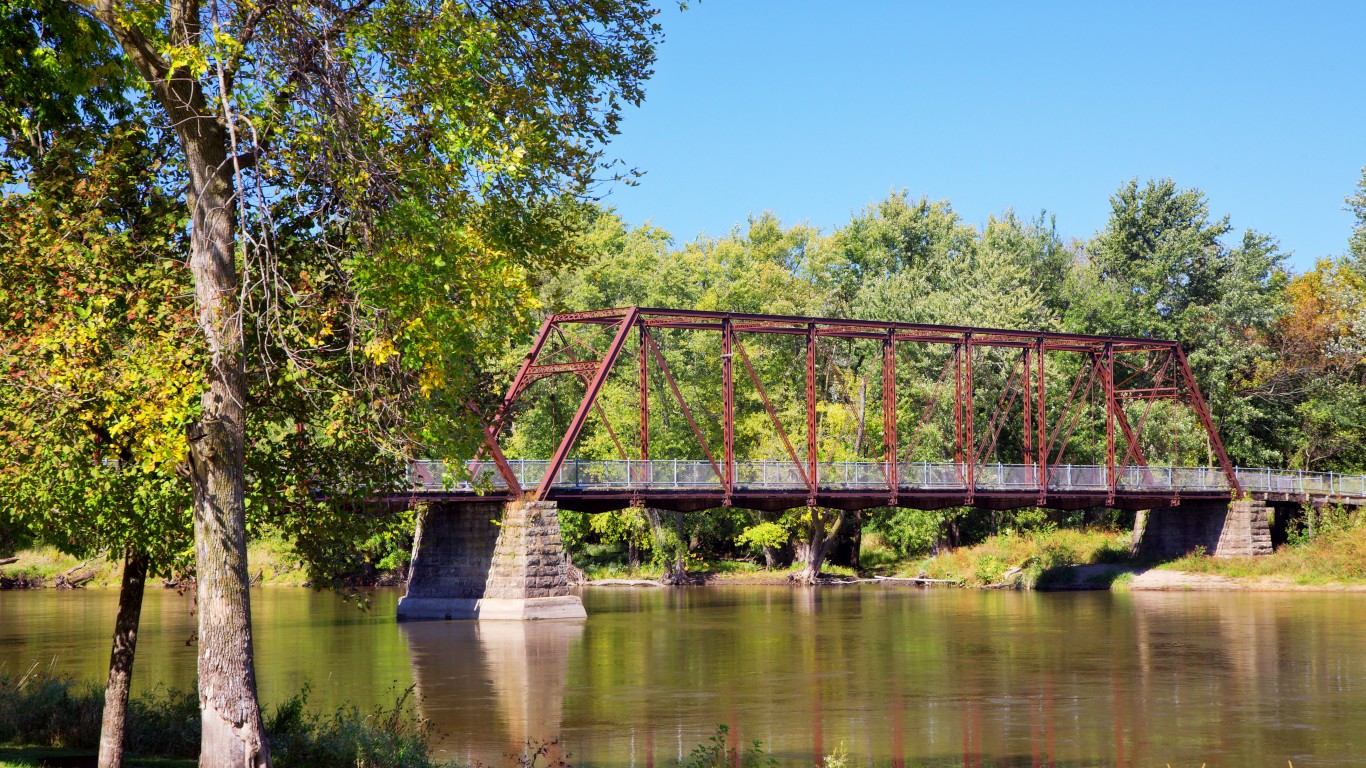
2. Iowa
> Share of bridges in poor condition: 19.1%
> Total bridges in poor condition: 4,571 — the most
> Total bridges in Iowa: 23,982 — 7th most
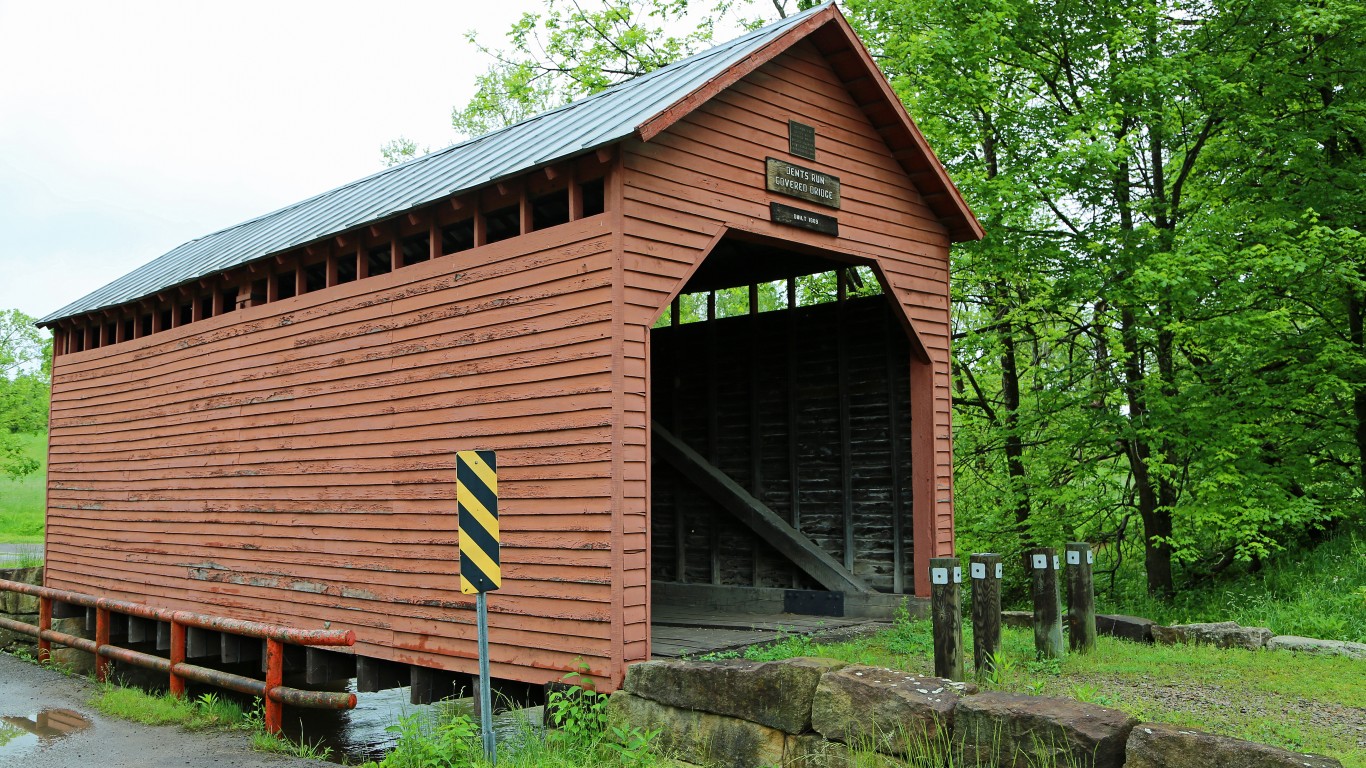
1. West Virginia
> Share of bridges in poor condition: 21.2%
> Total bridges in poor condition: 1,545 — 8th most
> Total bridges in West Virginia: 7,295 — 20th fewest
100 Million Americans Are Missing This Crucial Retirement Tool
The thought of burdening your family with a financial disaster is most Americans’ nightmare. However, recent studies show that over 100 million Americans still don’t have proper life insurance in the event they pass away.
Life insurance can bring peace of mind – ensuring your loved ones are safeguarded against unforeseen expenses and debts. With premiums often lower than expected and a variety of plans tailored to different life stages and health conditions, securing a policy is more accessible than ever.
A quick, no-obligation quote can provide valuable insight into what’s available and what might best suit your family’s needs. Life insurance is a simple step you can take today to help secure peace of mind for your loved ones tomorrow.
Click here to learn how to get a quote in just a few minutes.
Thank you for reading! Have some feedback for us?
Contact the 24/7 Wall St. editorial team.
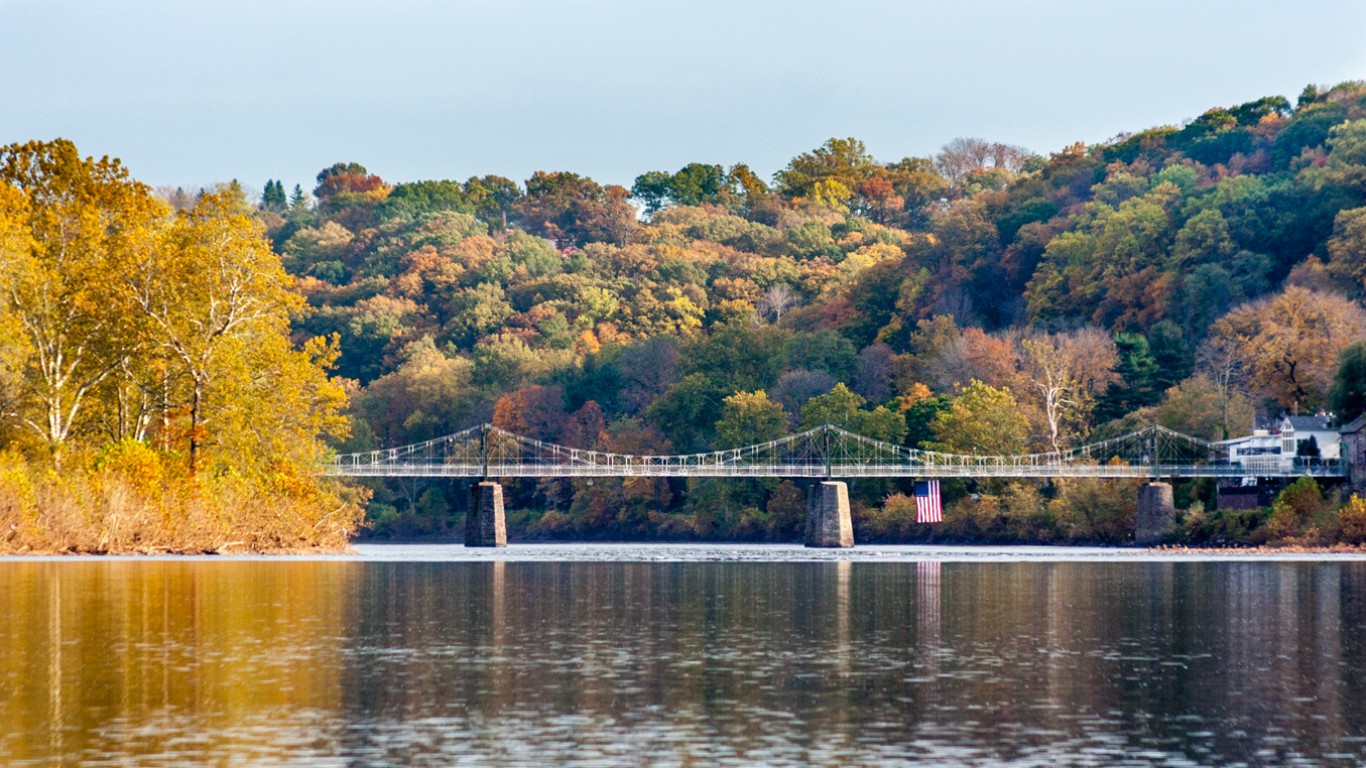
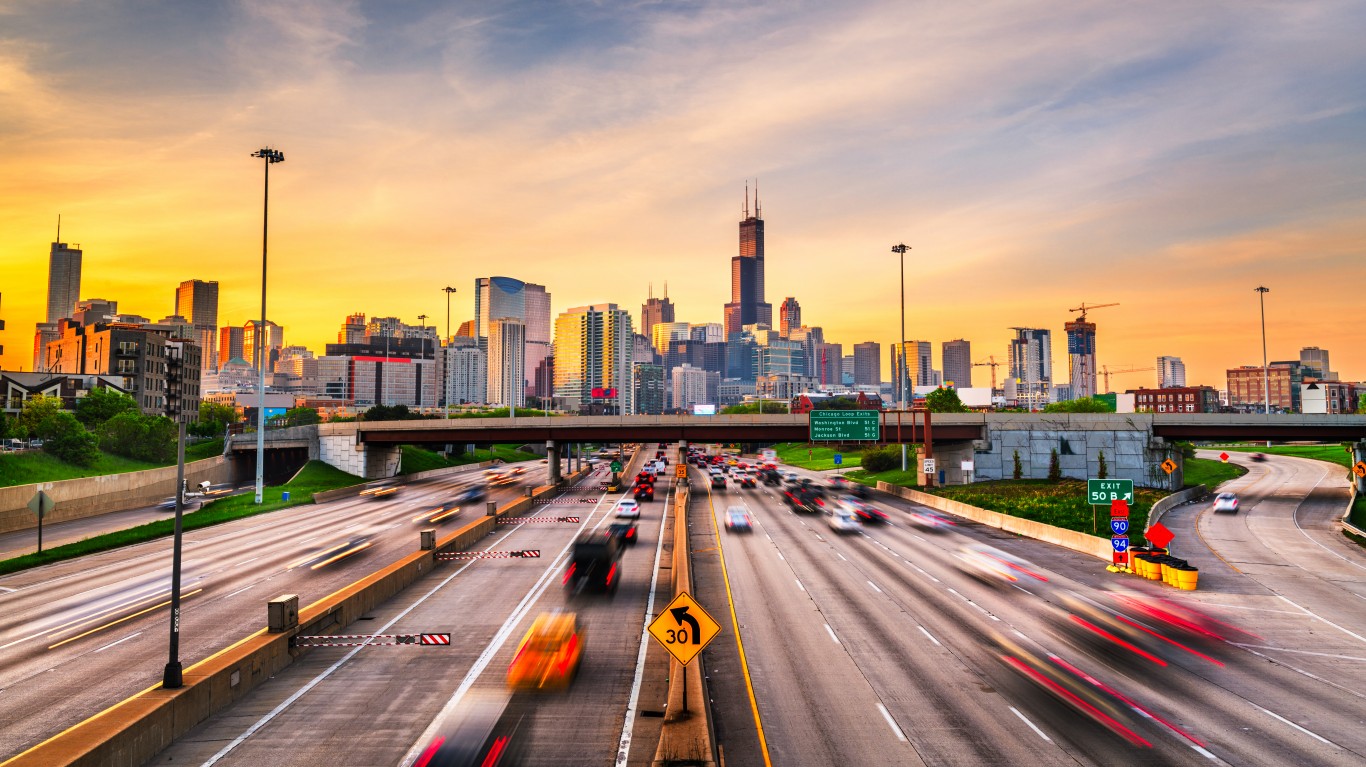 24/7 Wall St.
24/7 Wall St.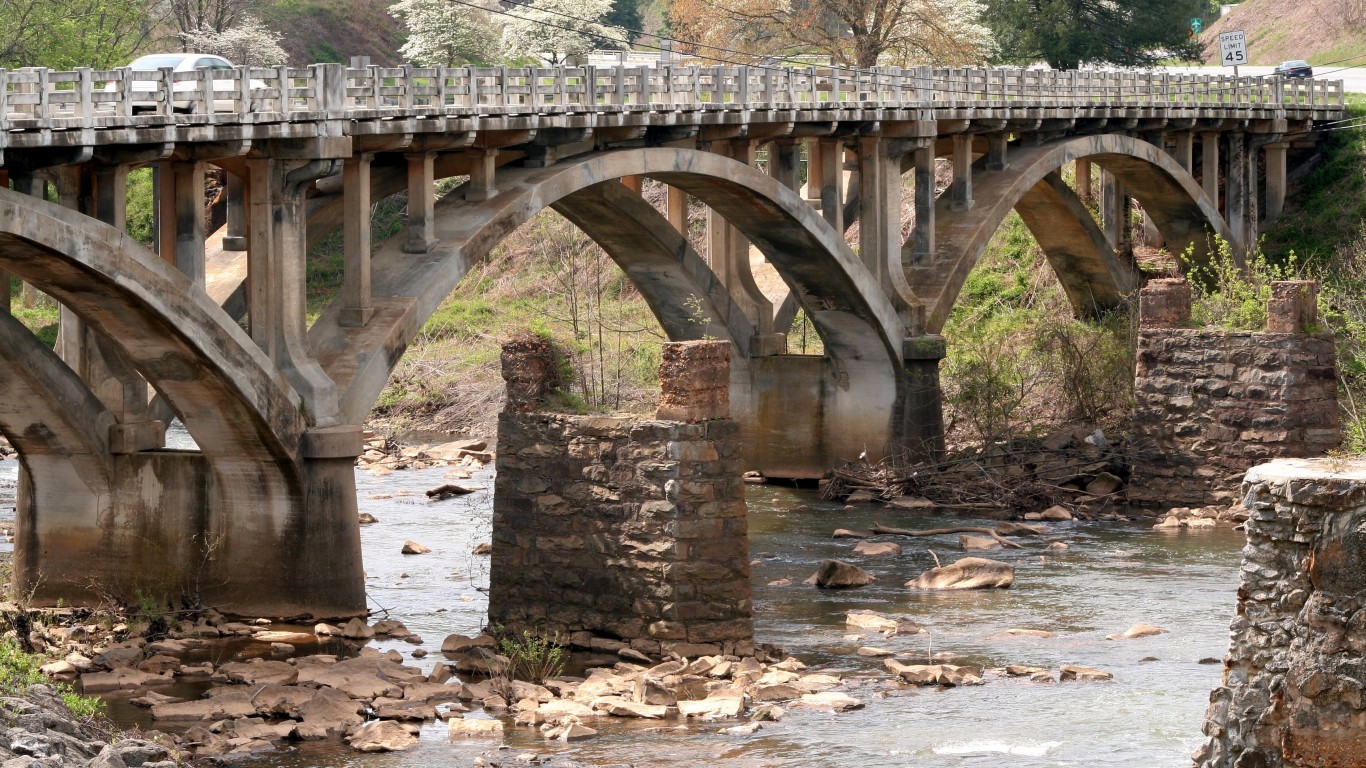
 24/7 Wall St.
24/7 Wall St.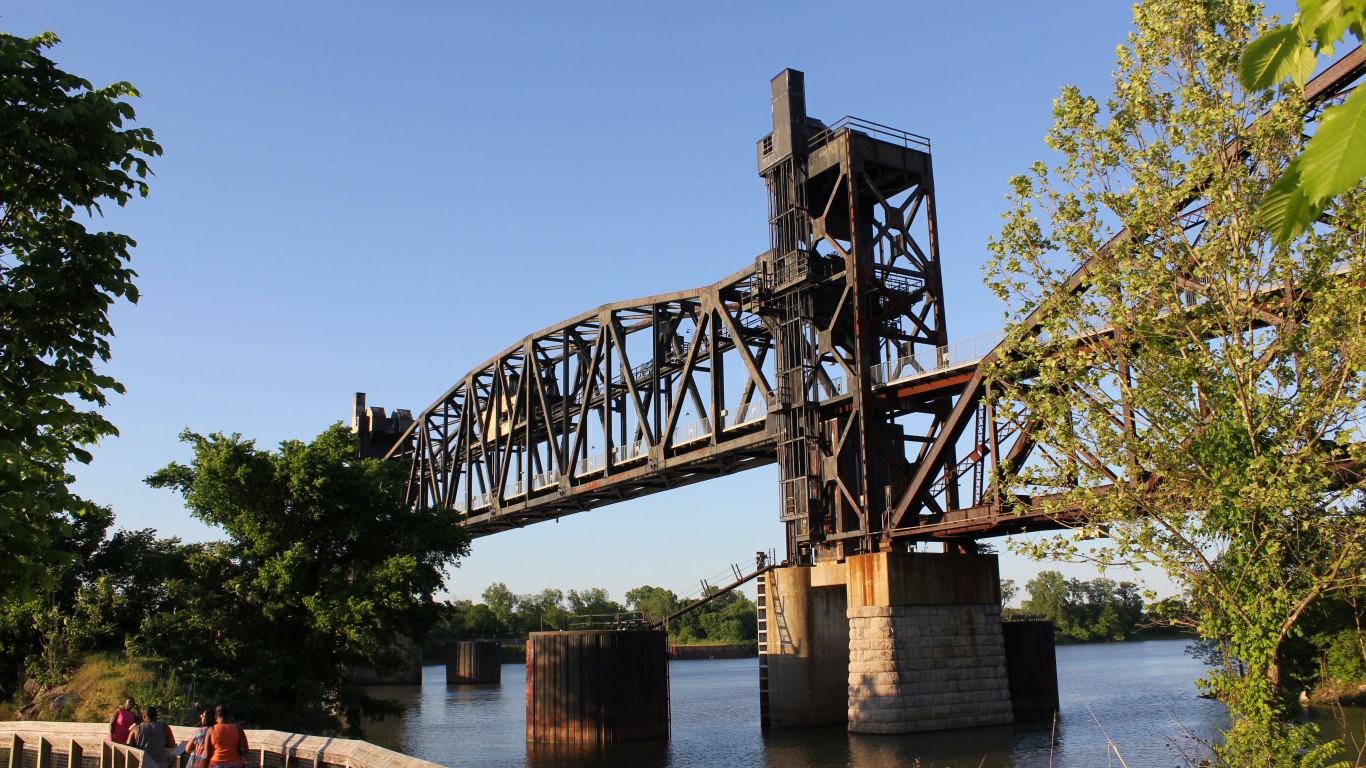
 24/7 Wall St.
24/7 Wall St.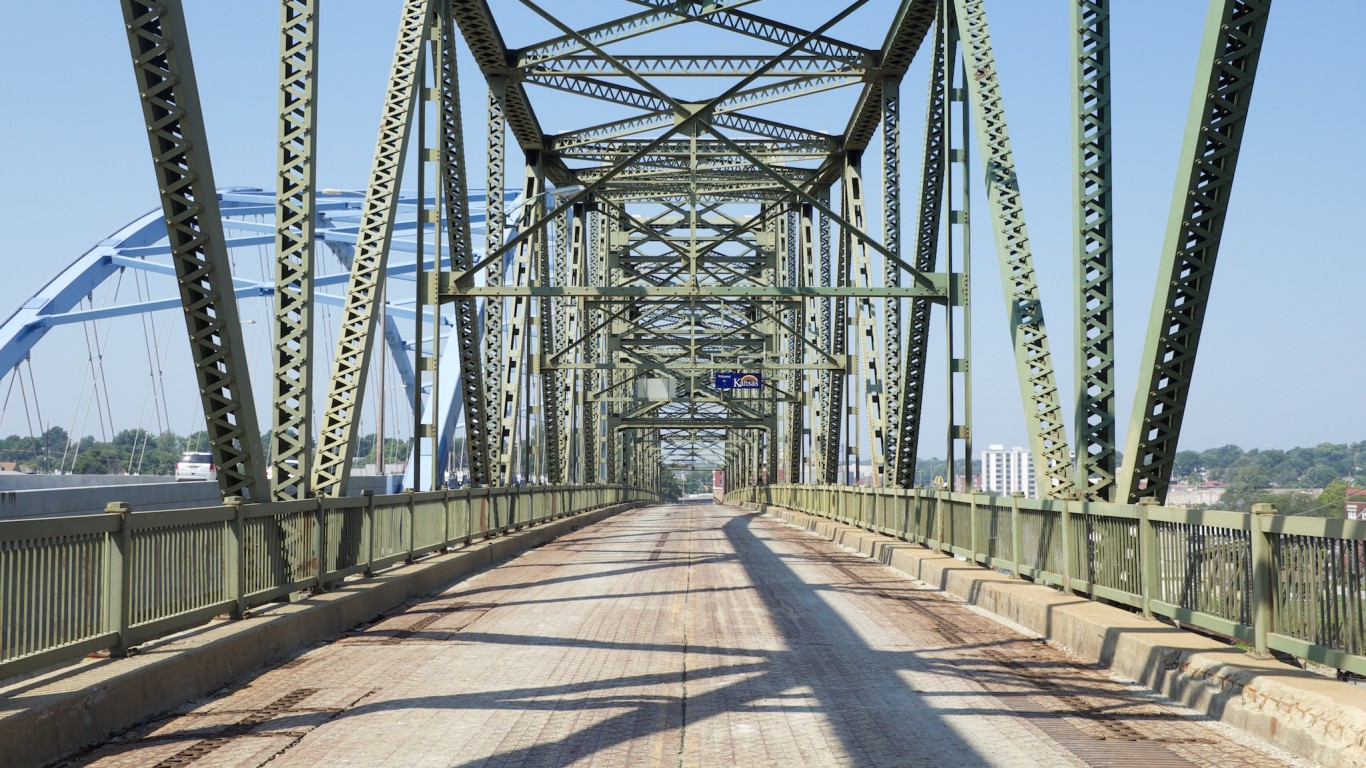
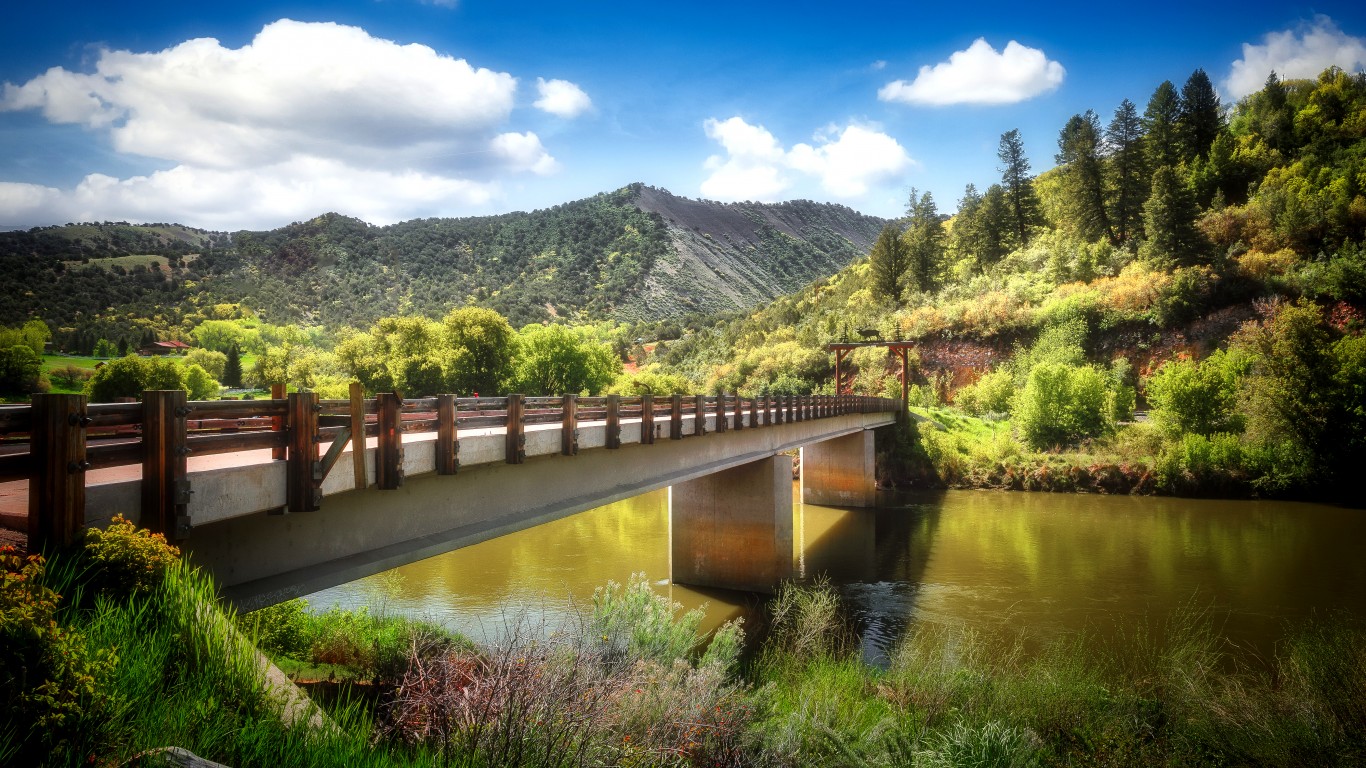
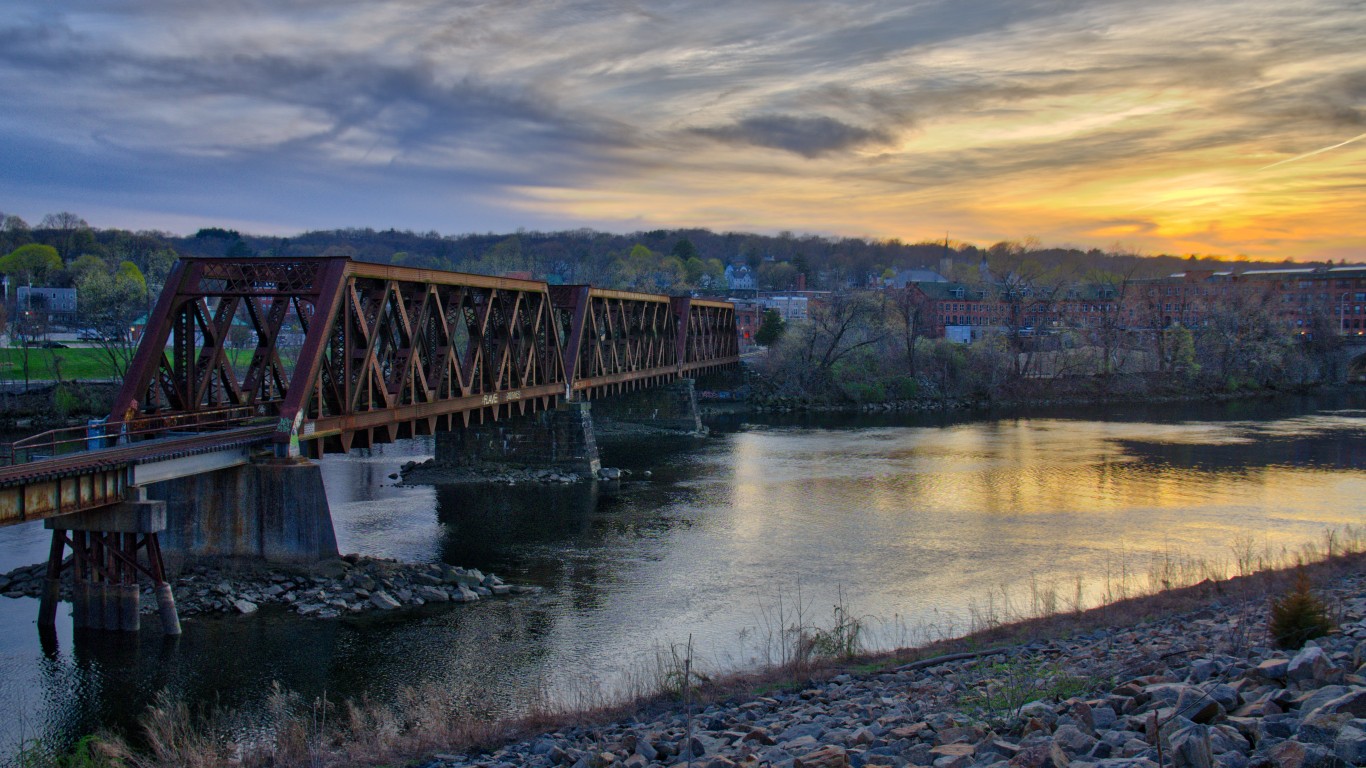
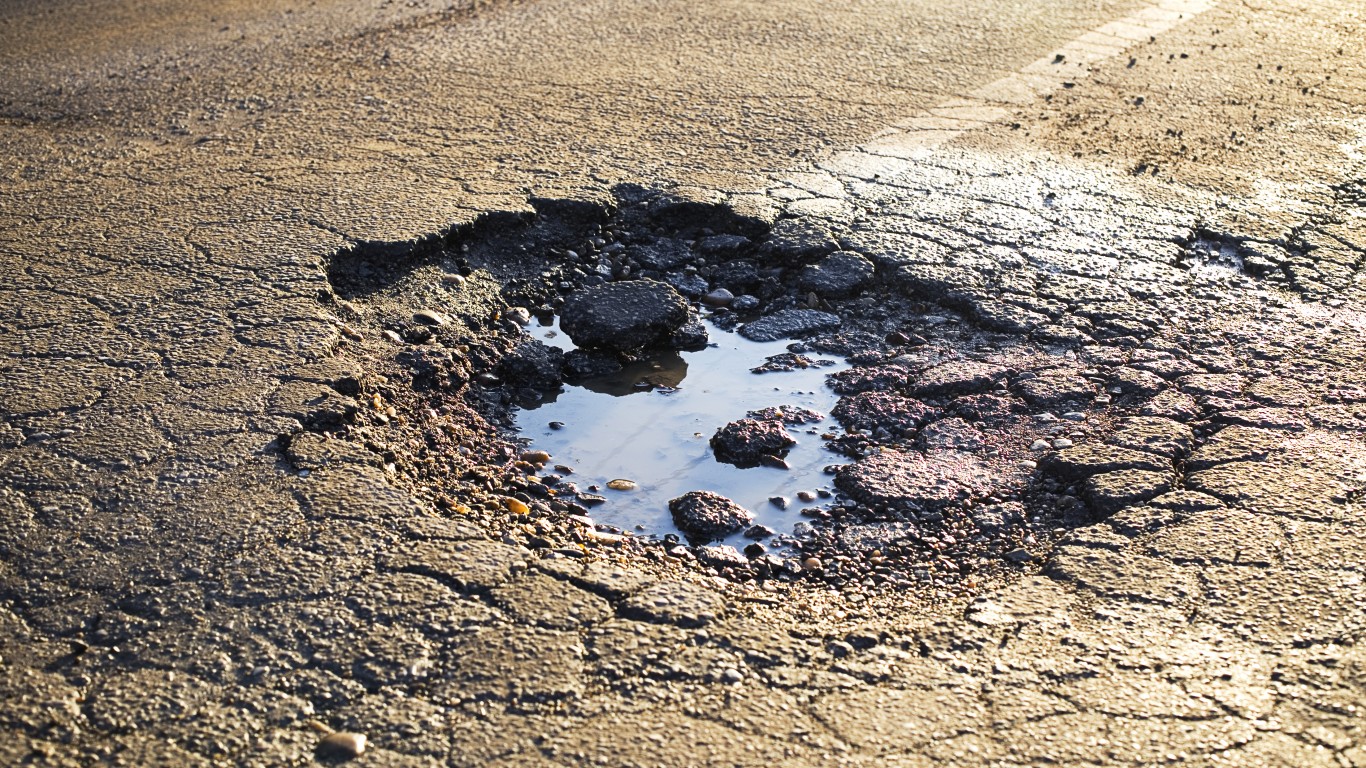 24/7 Wall St.
24/7 Wall St.